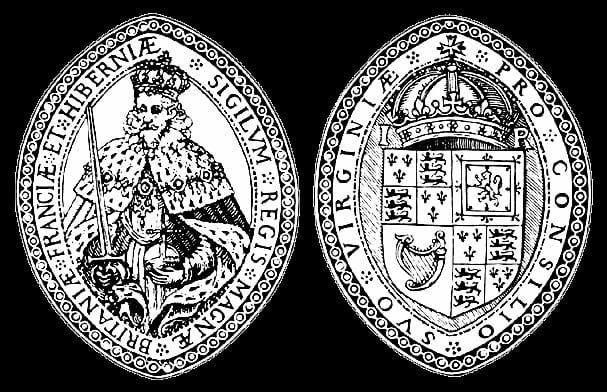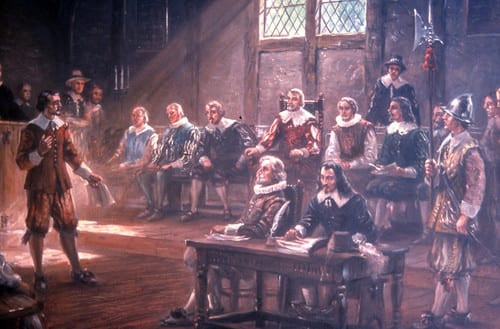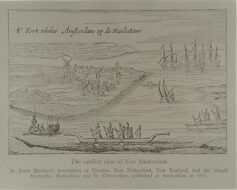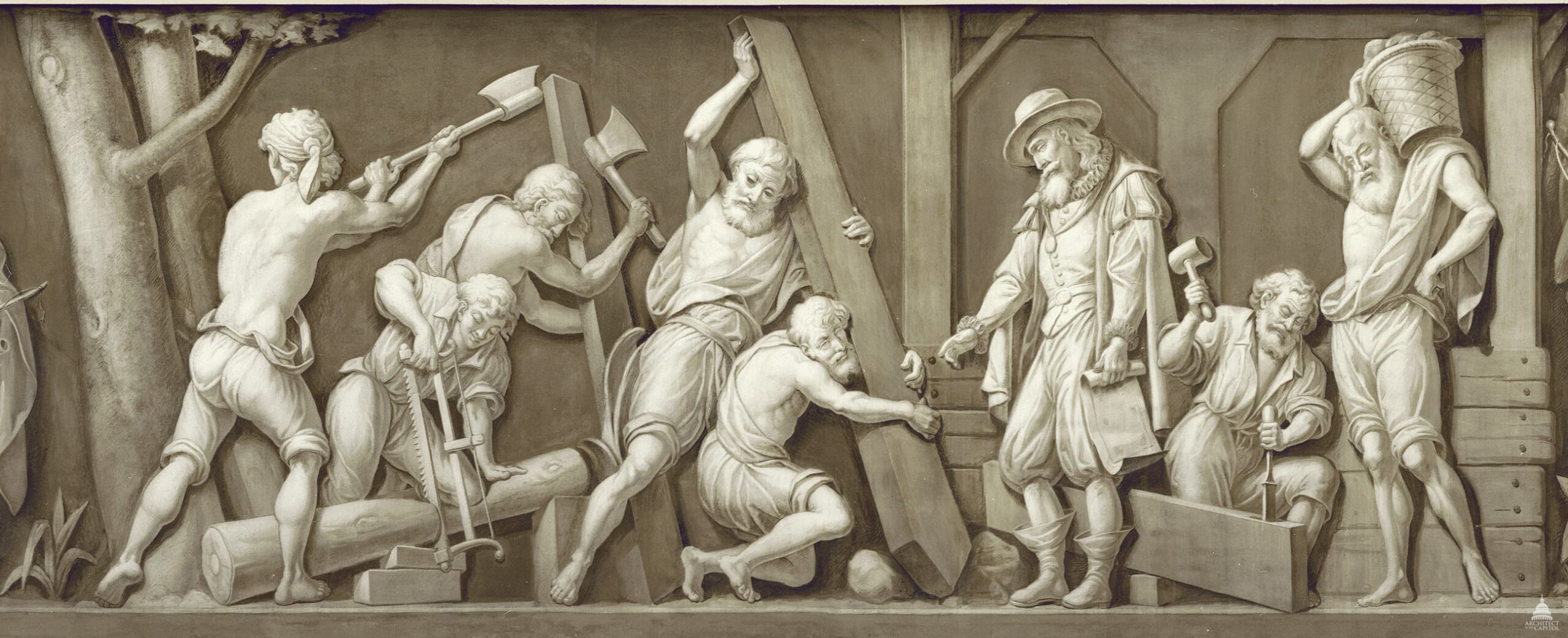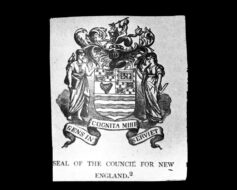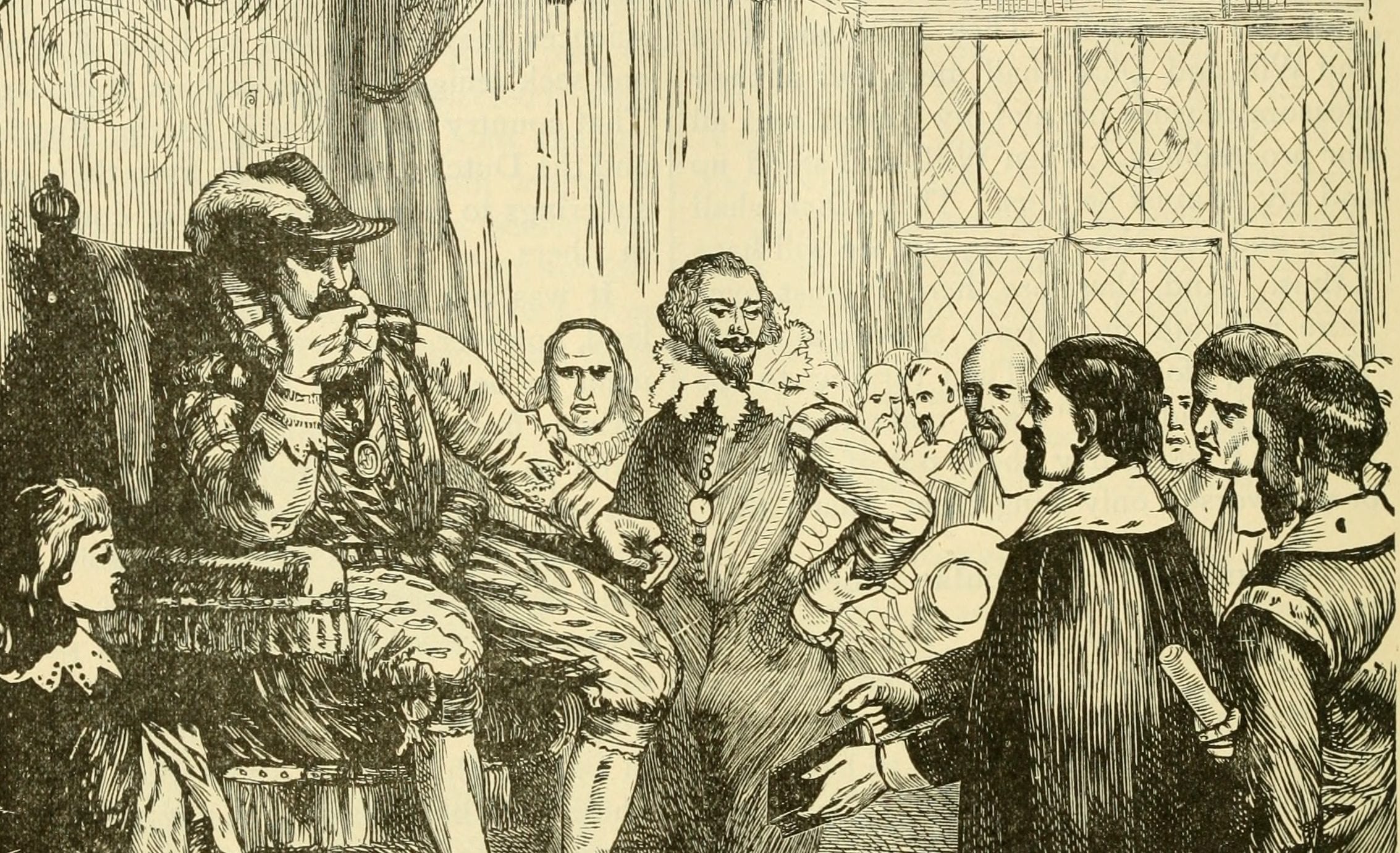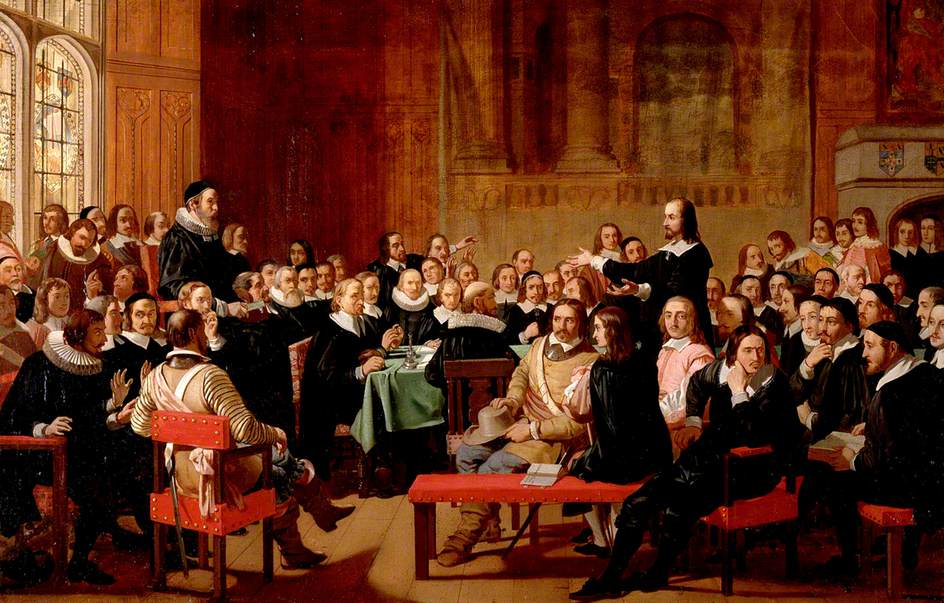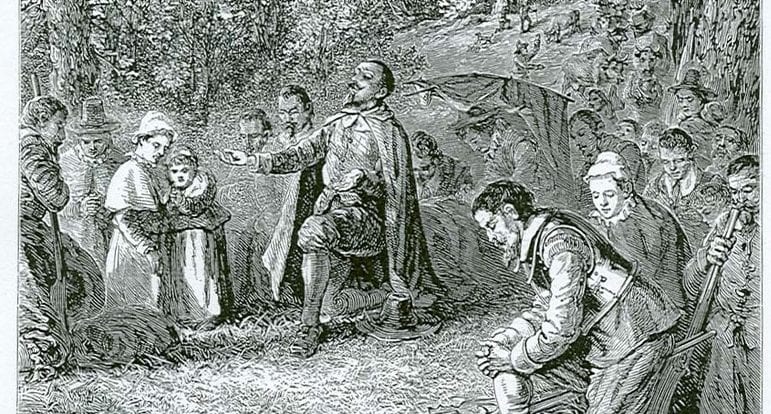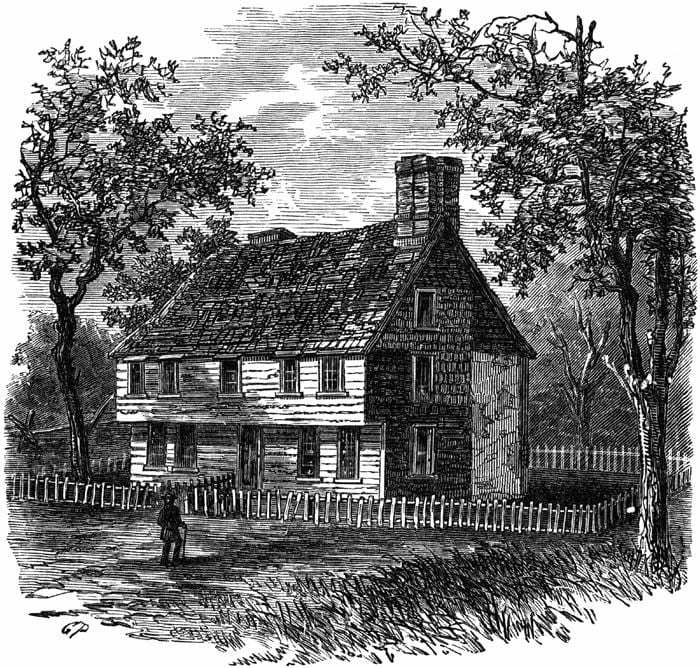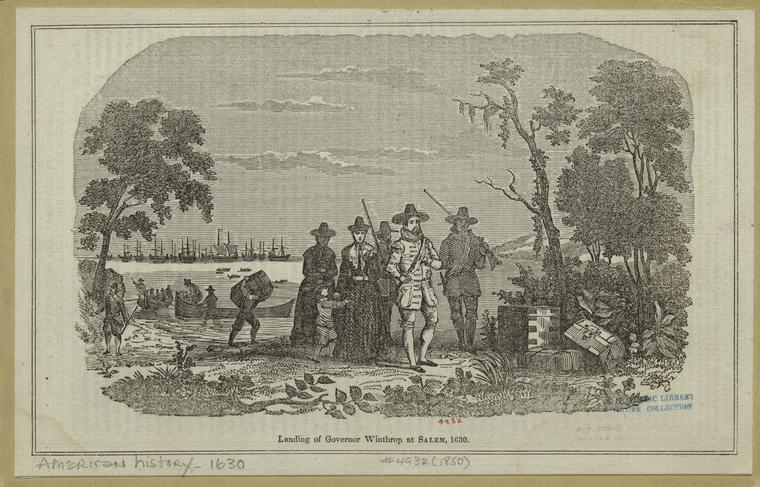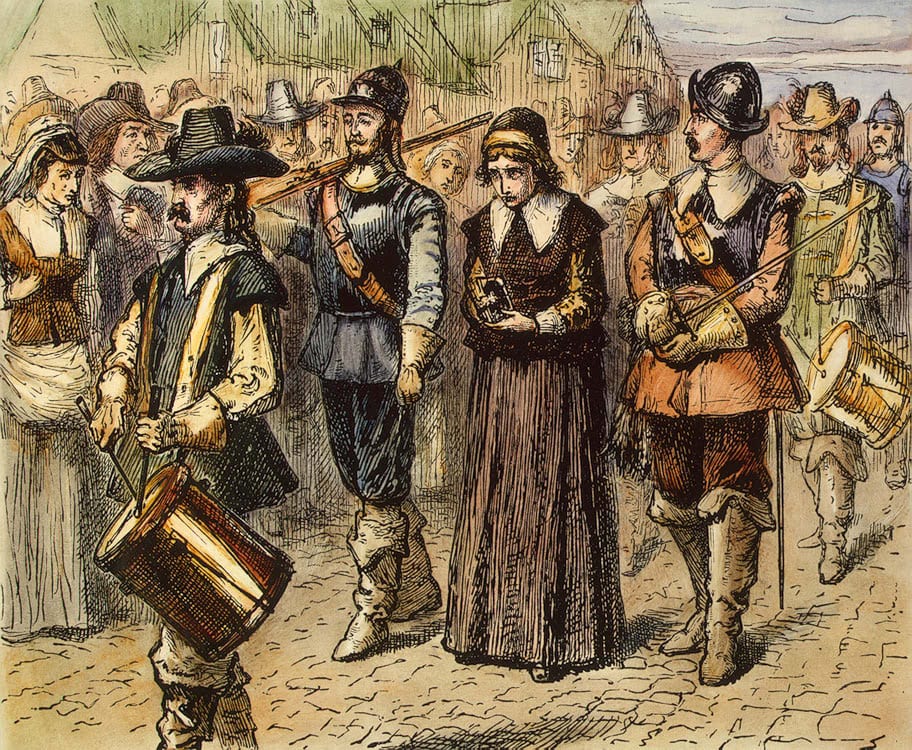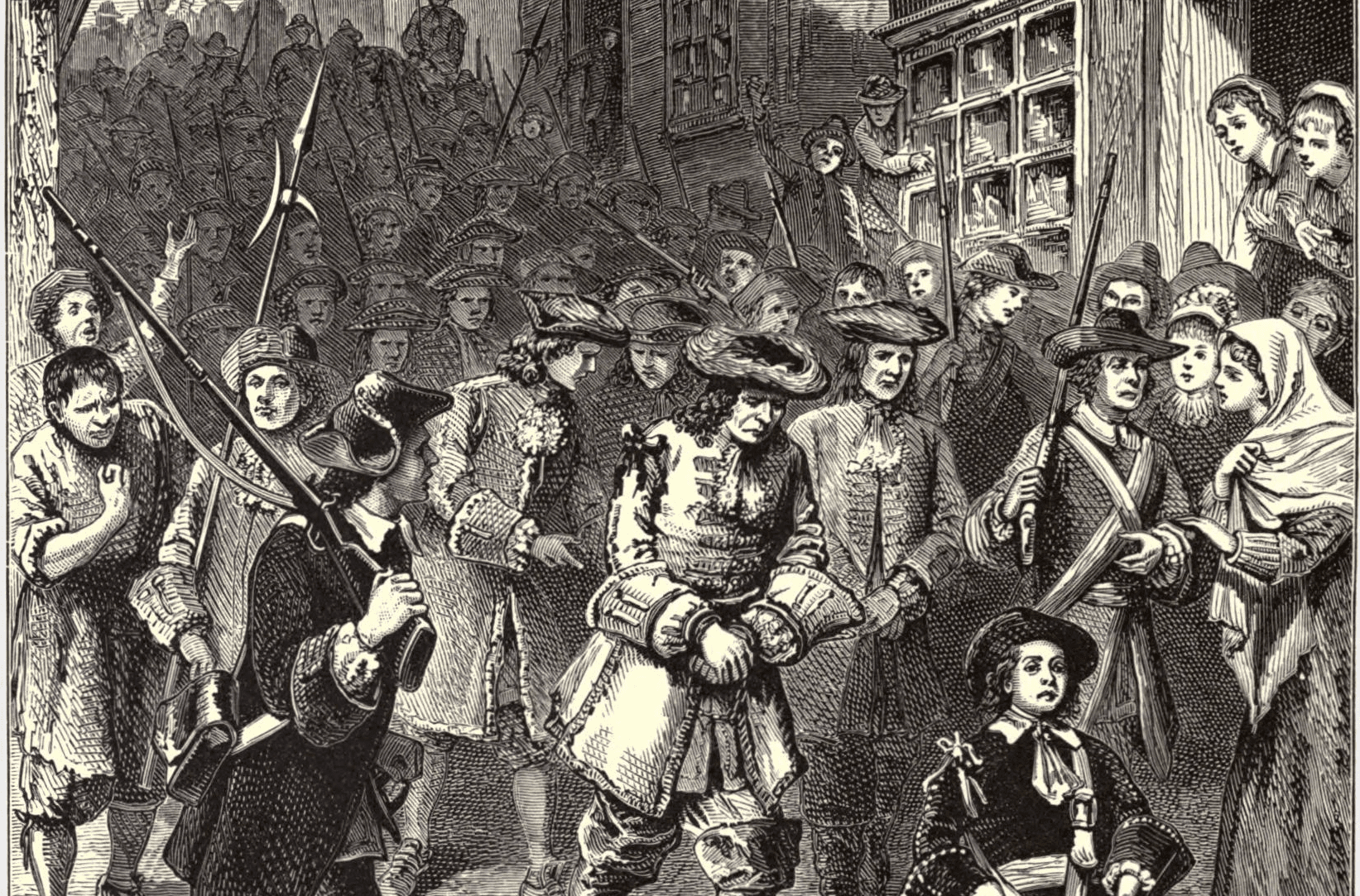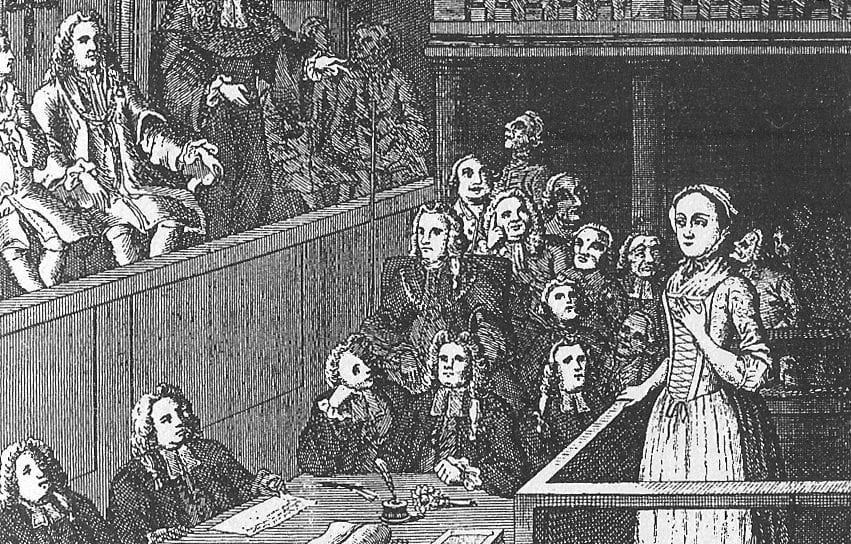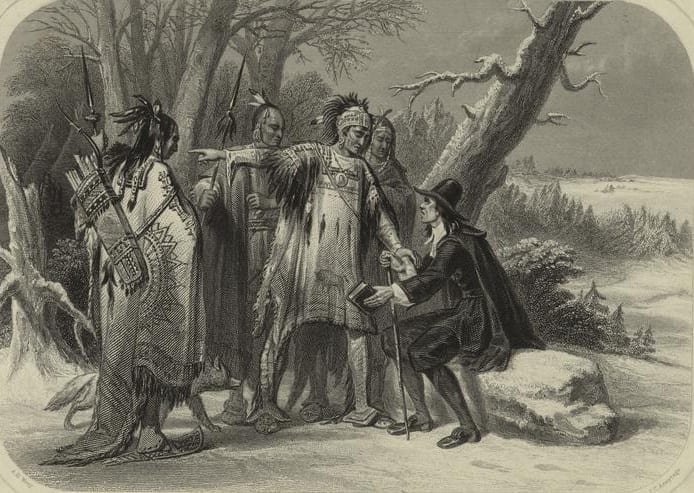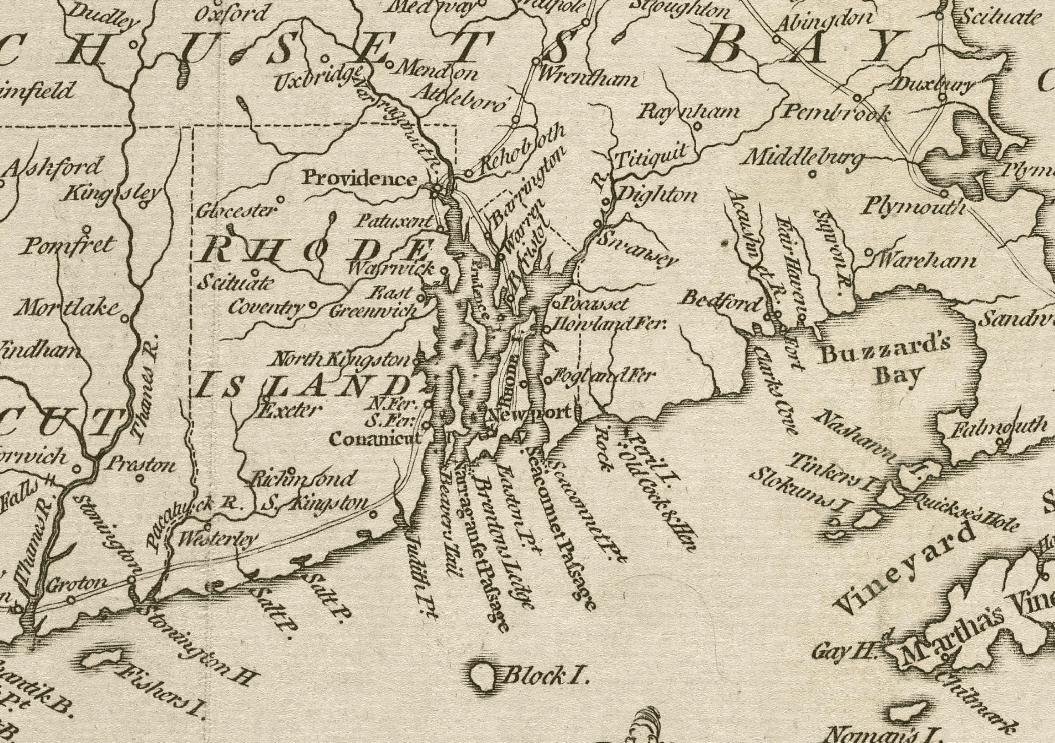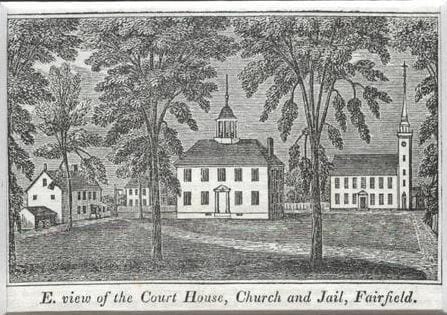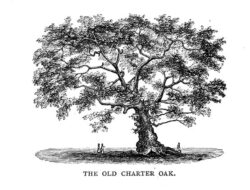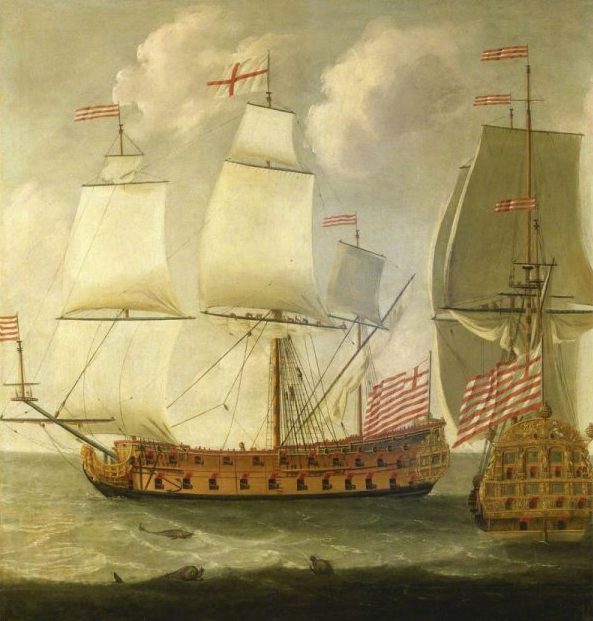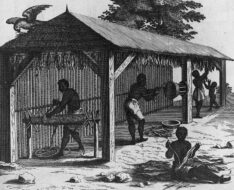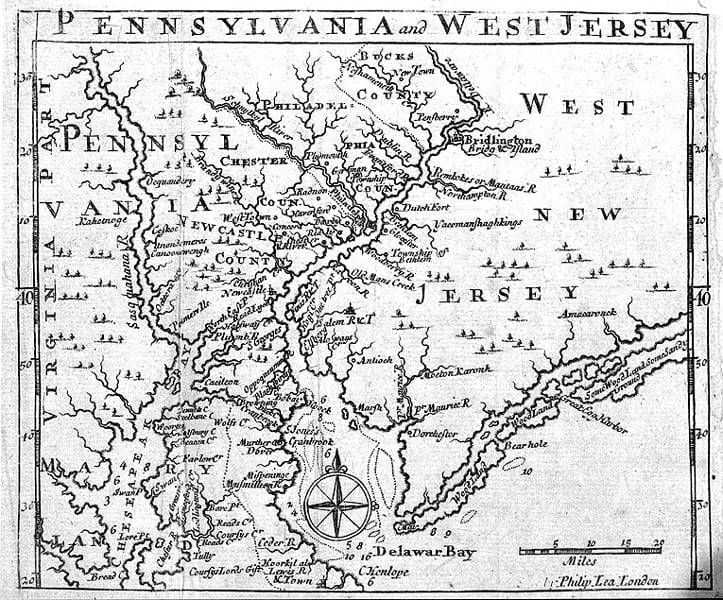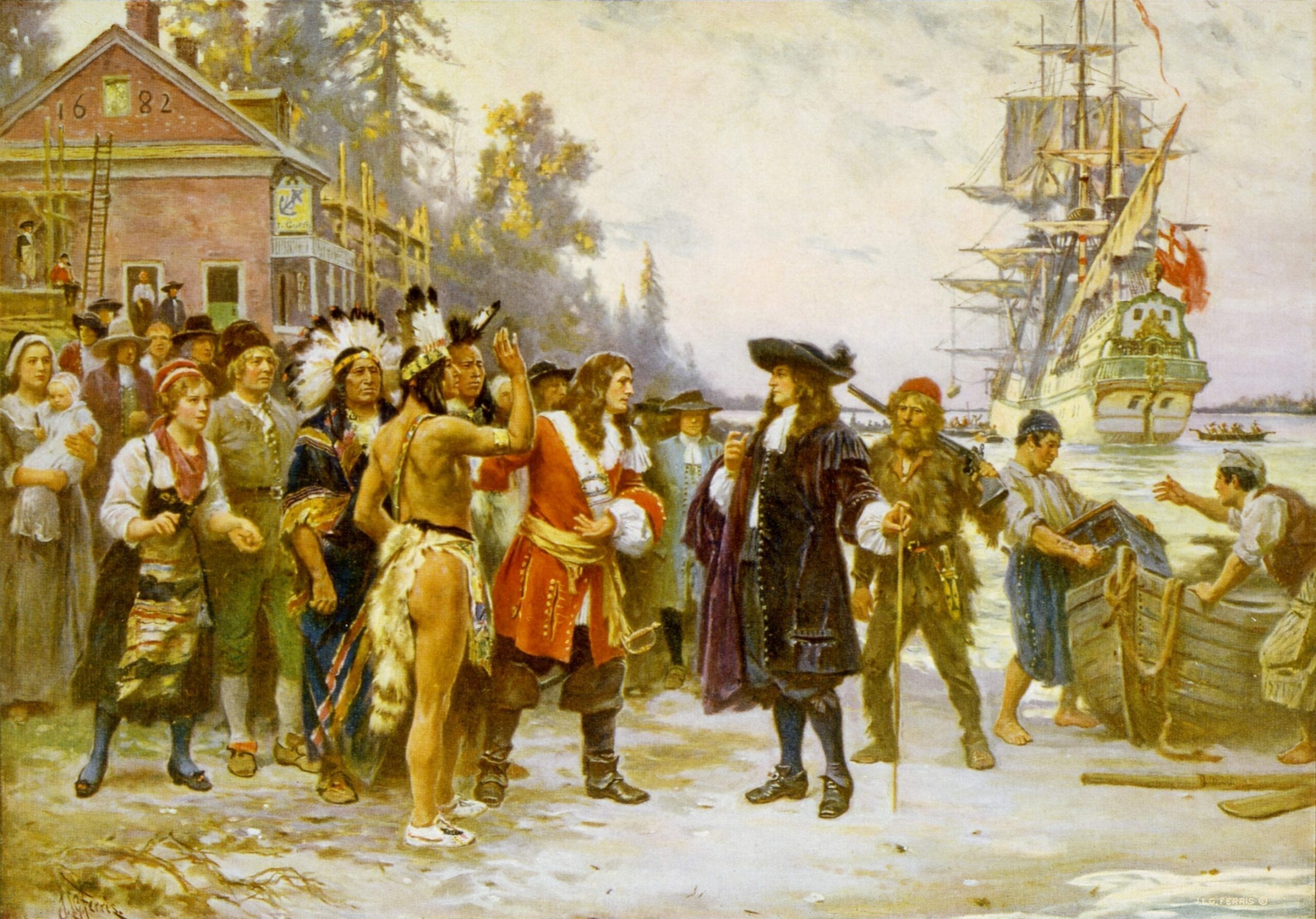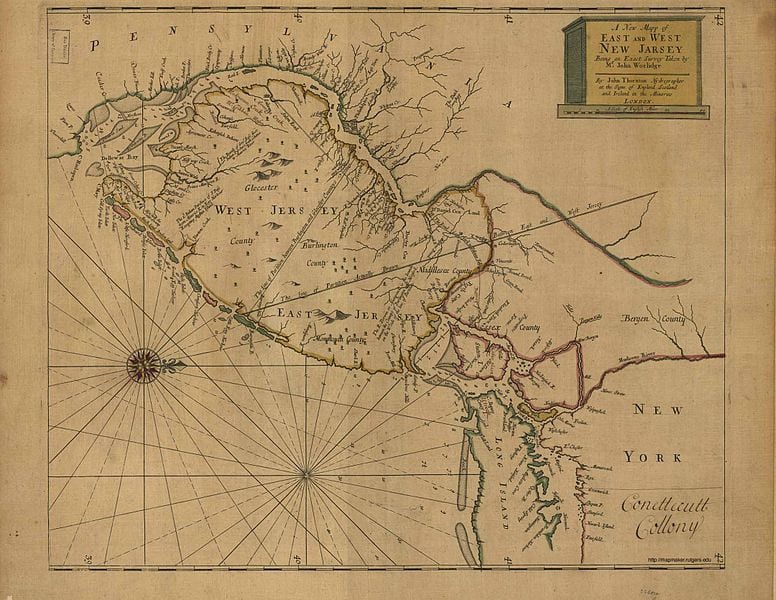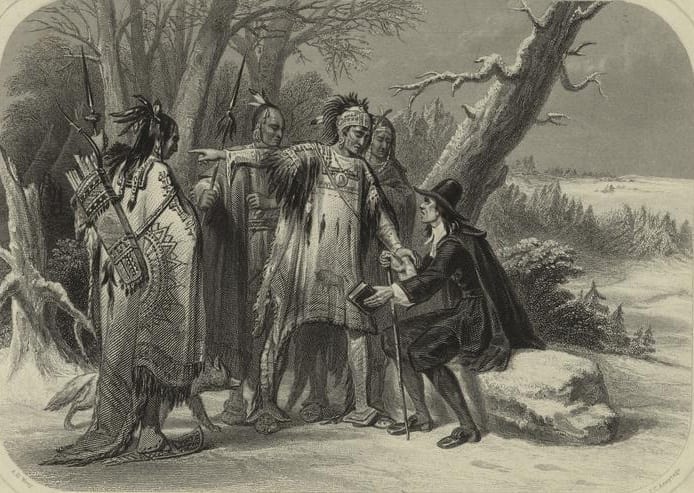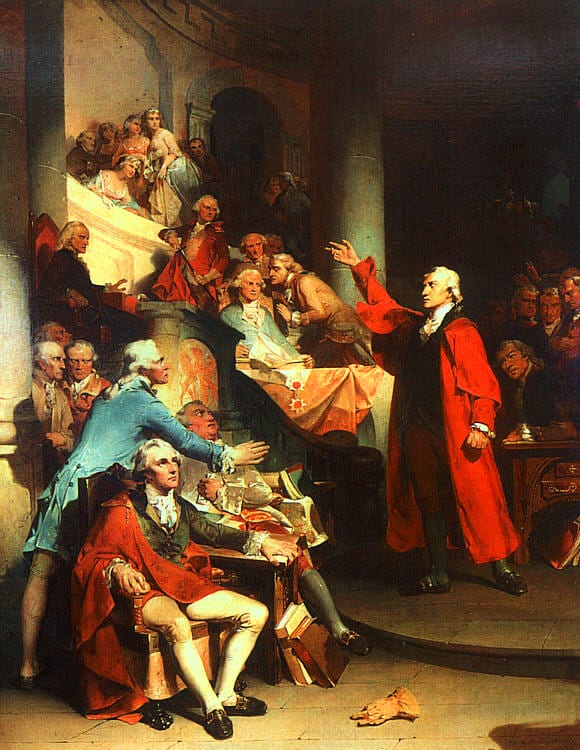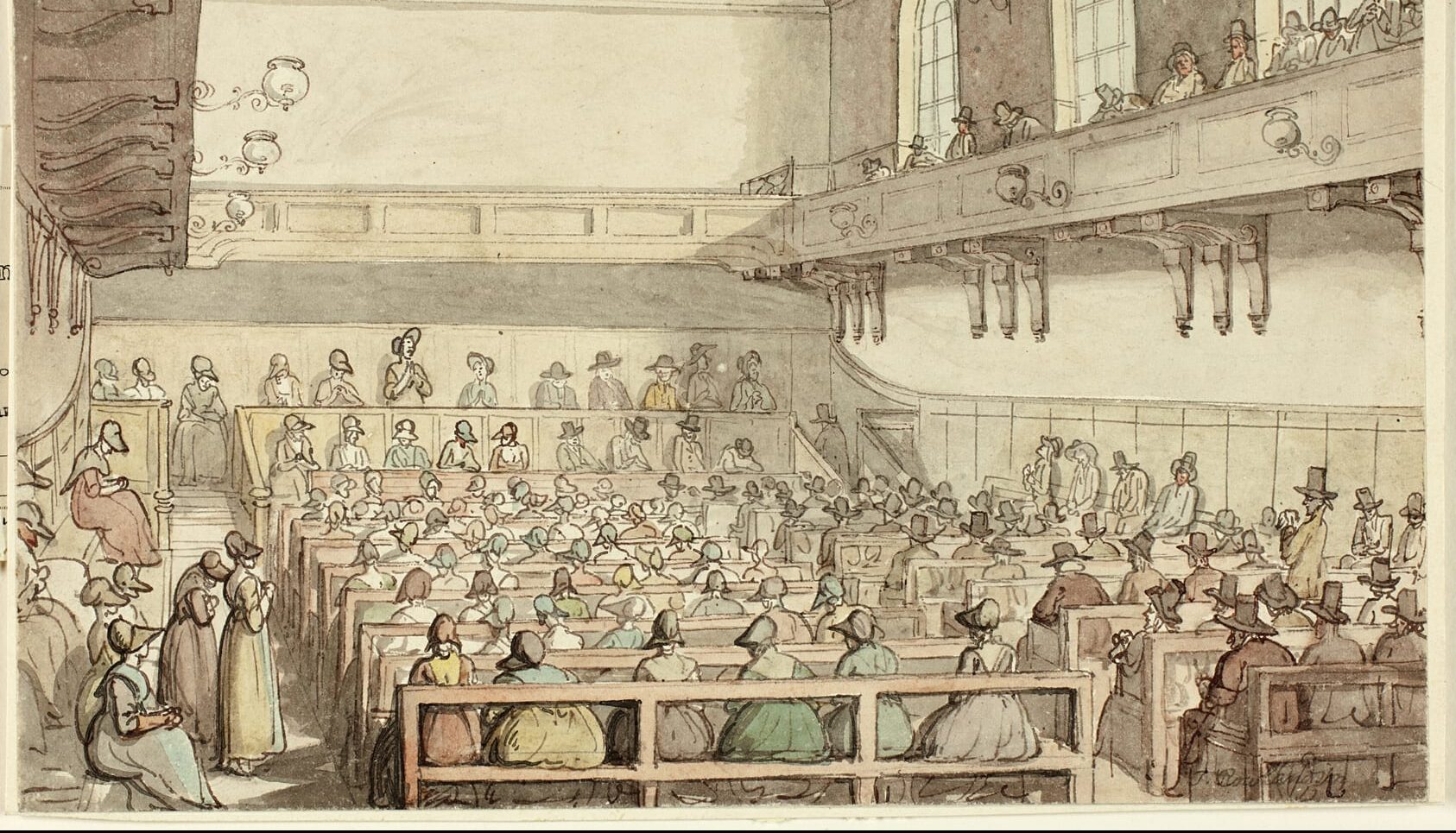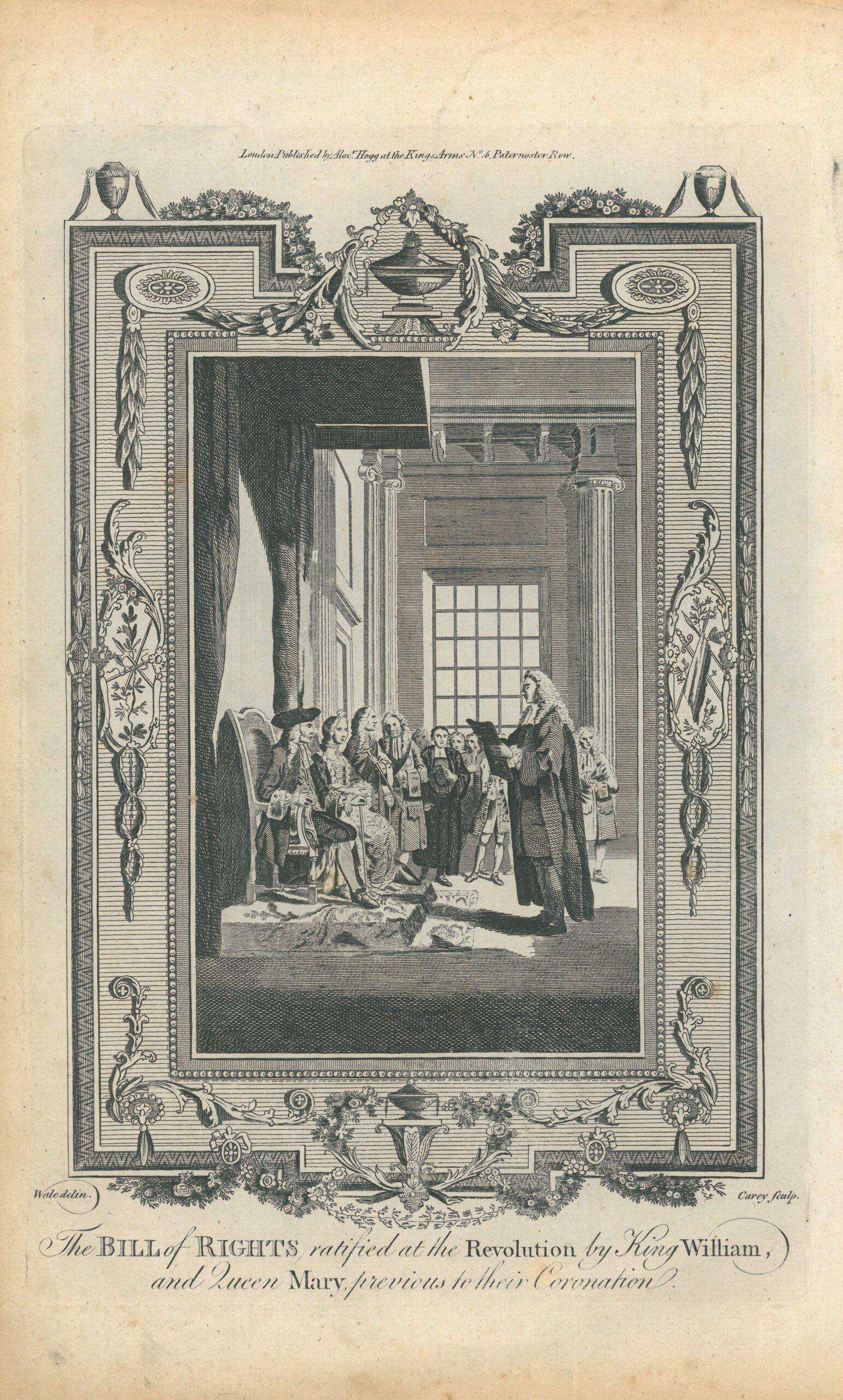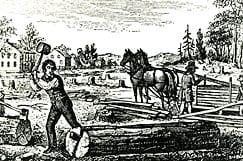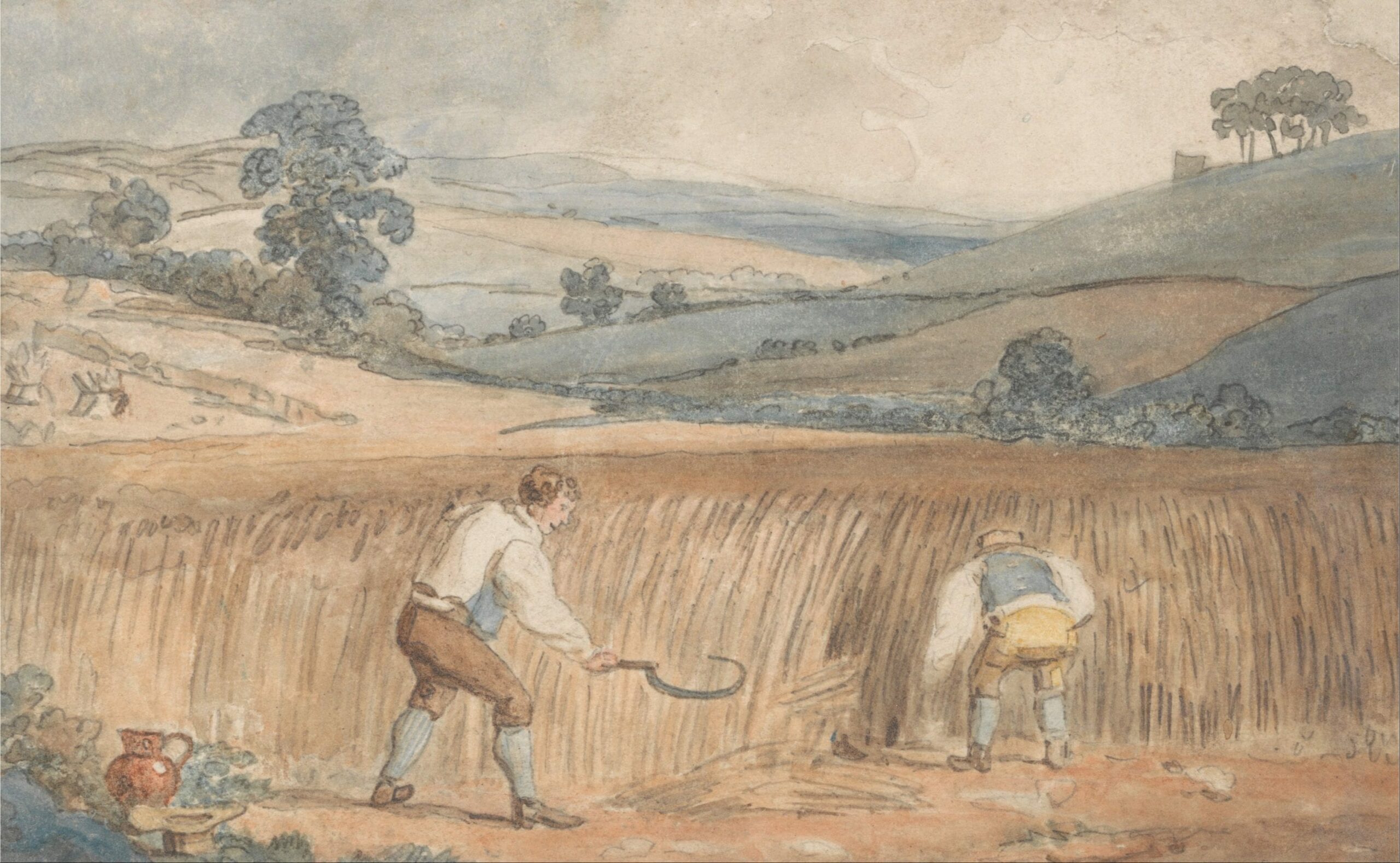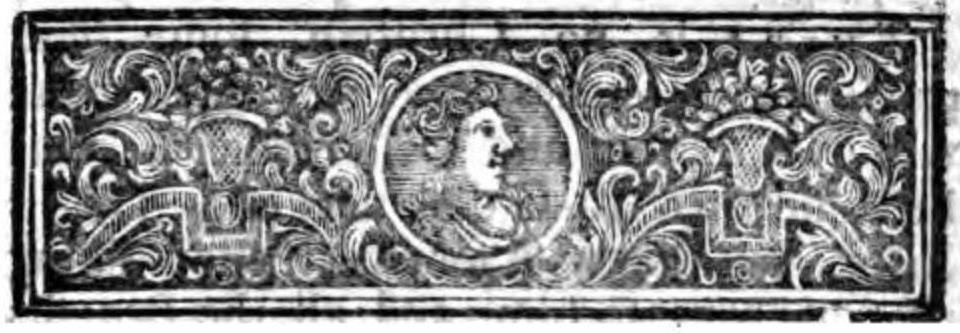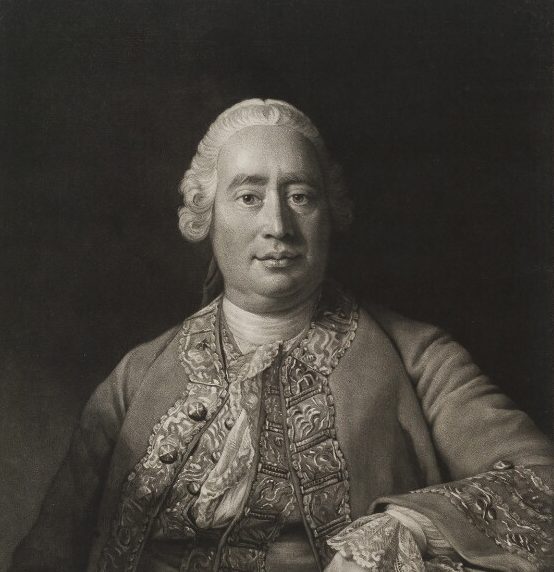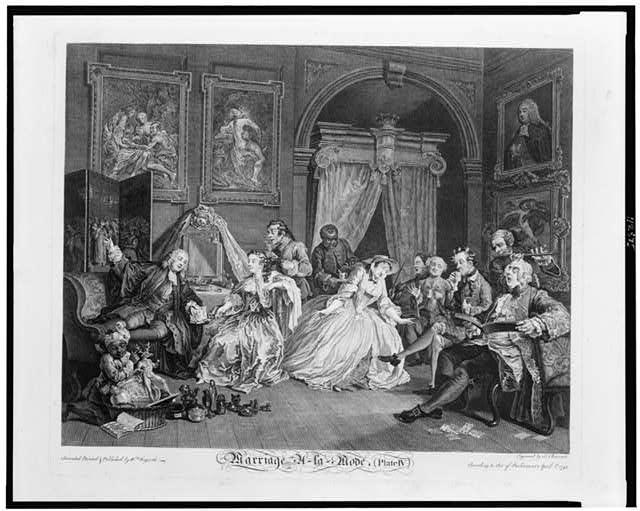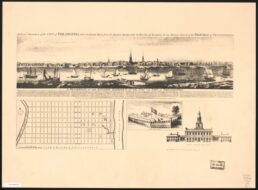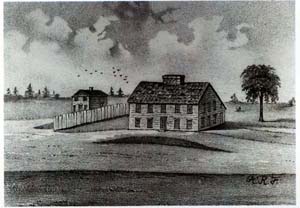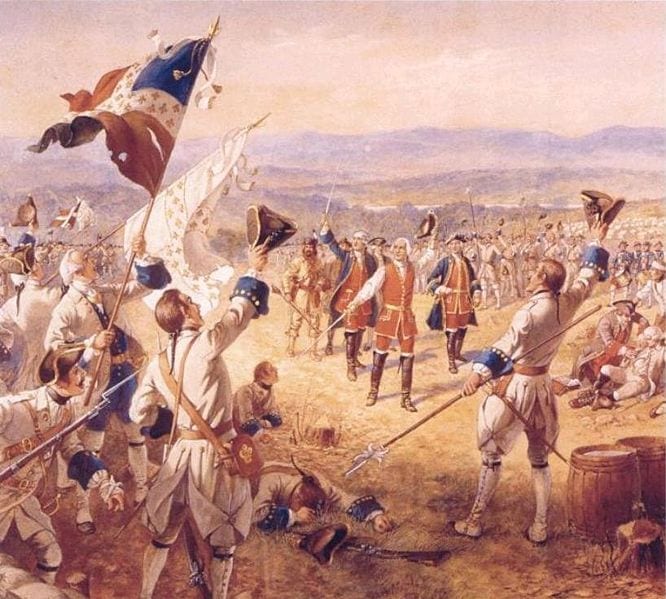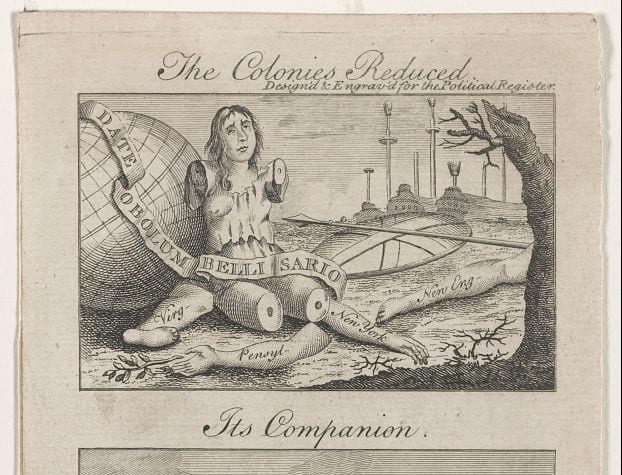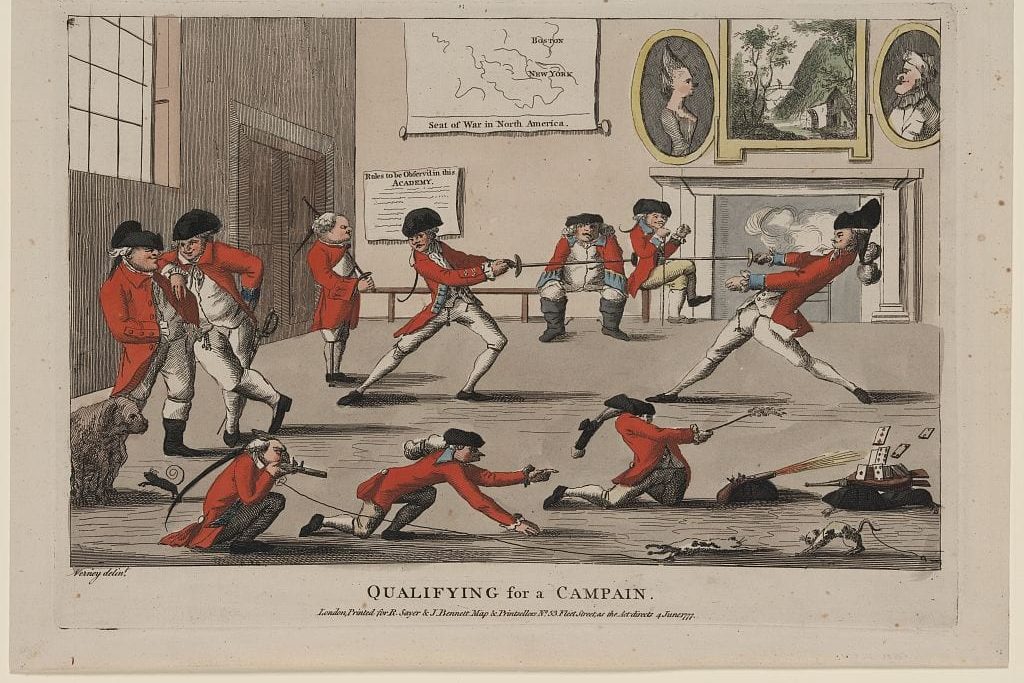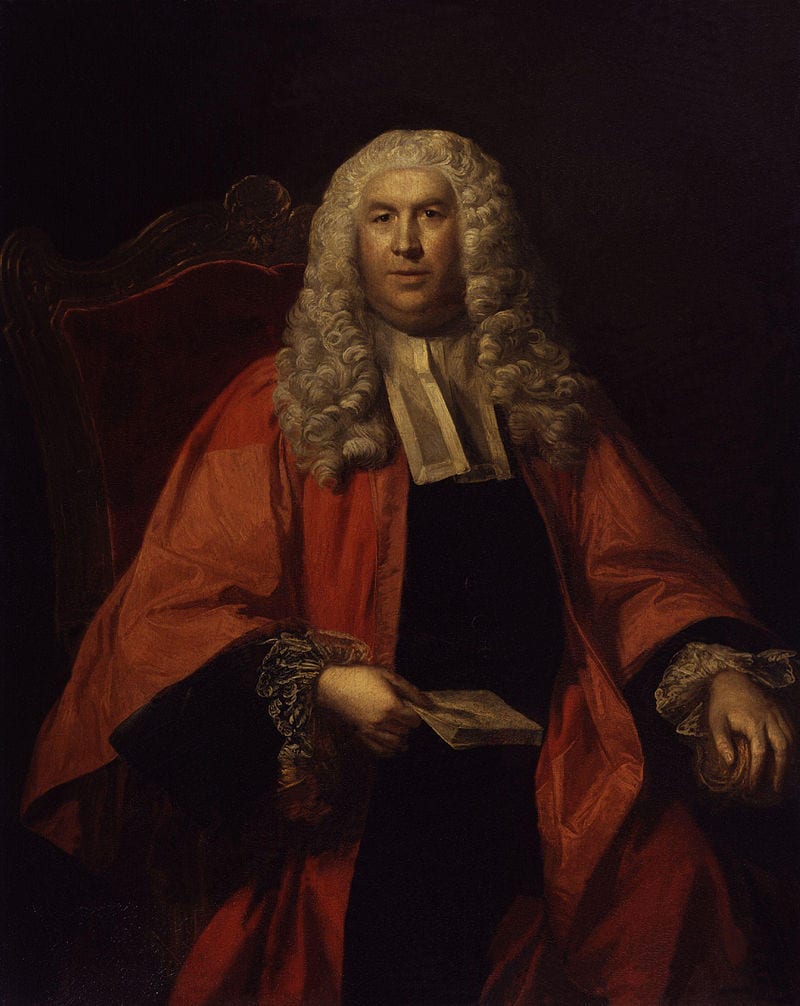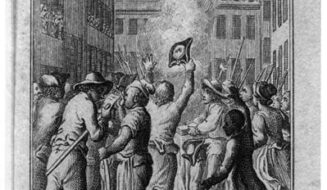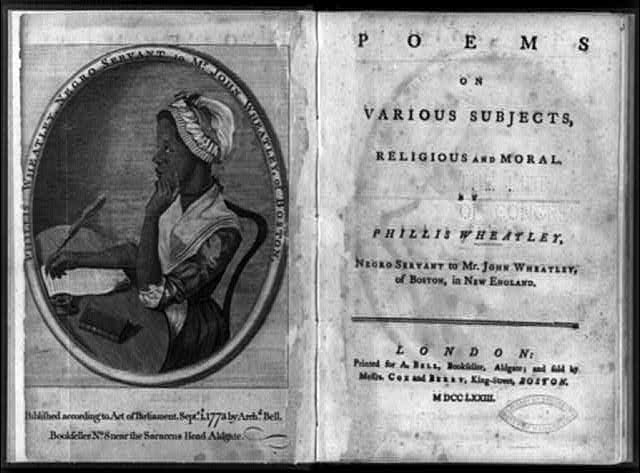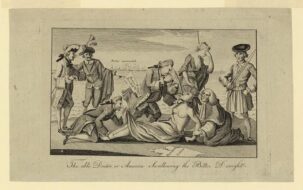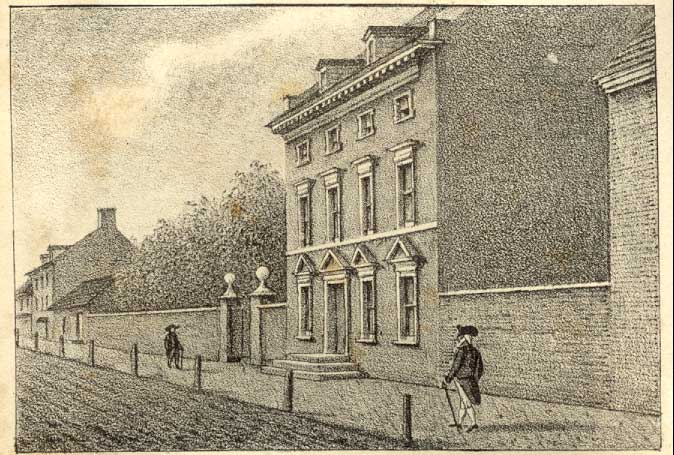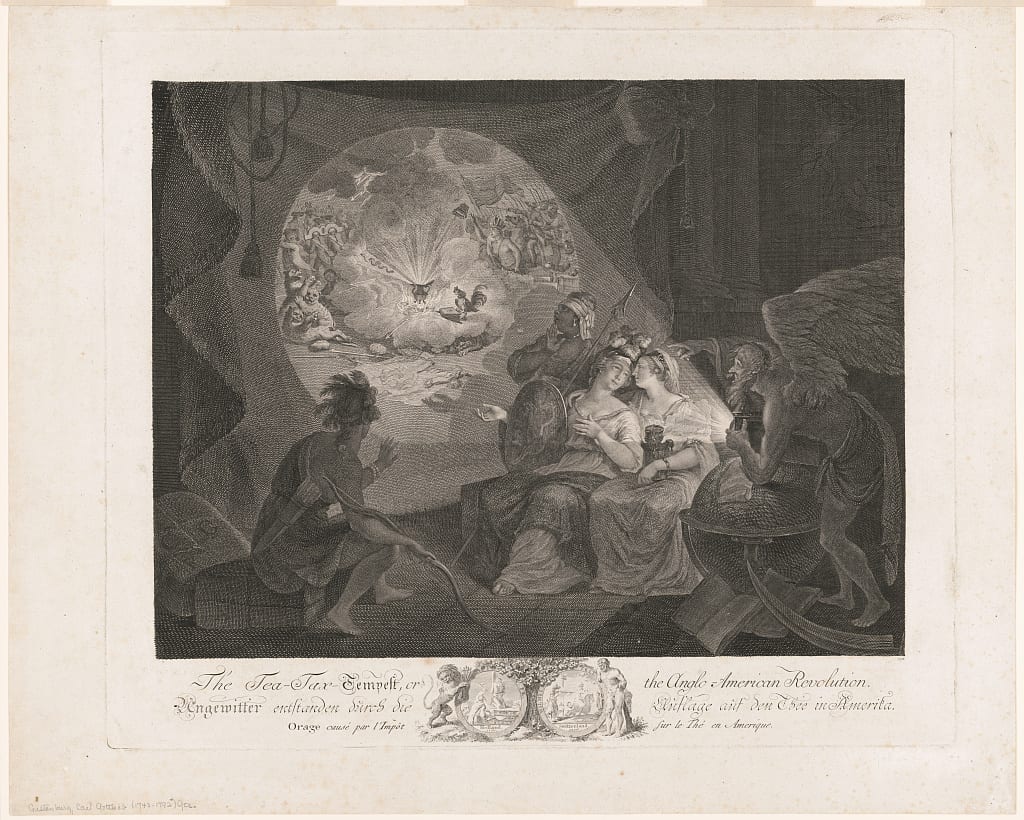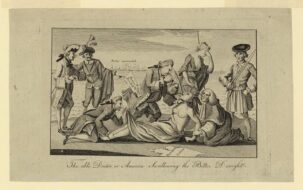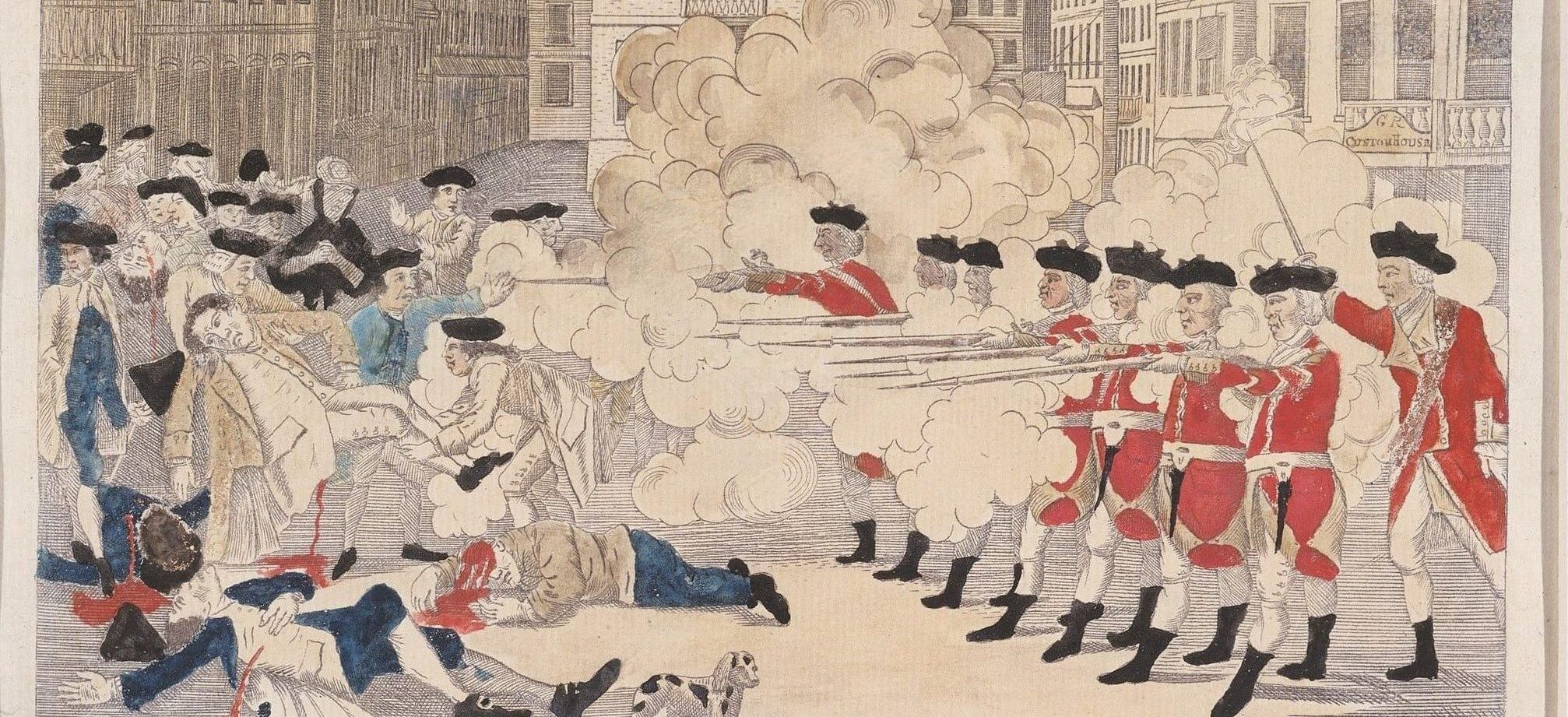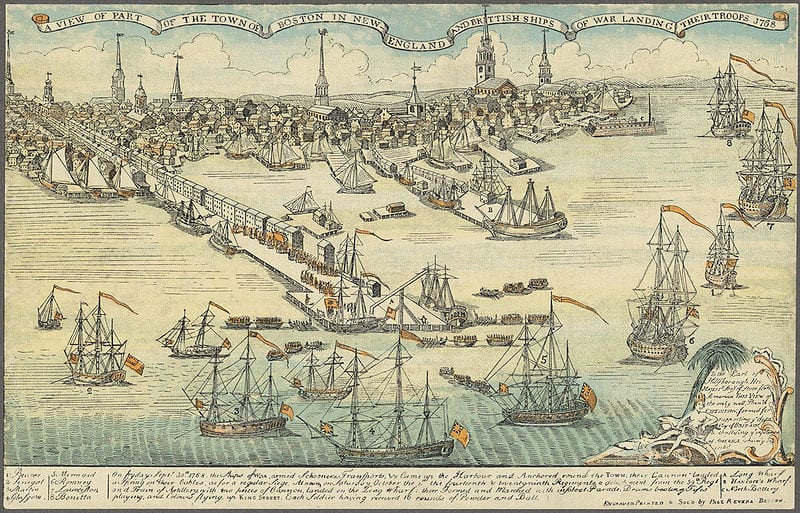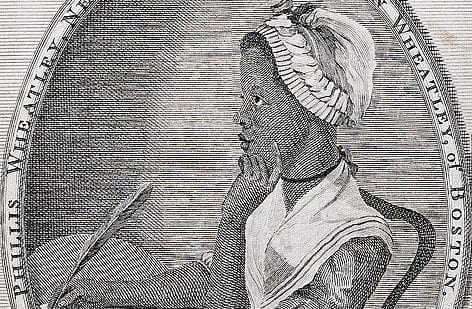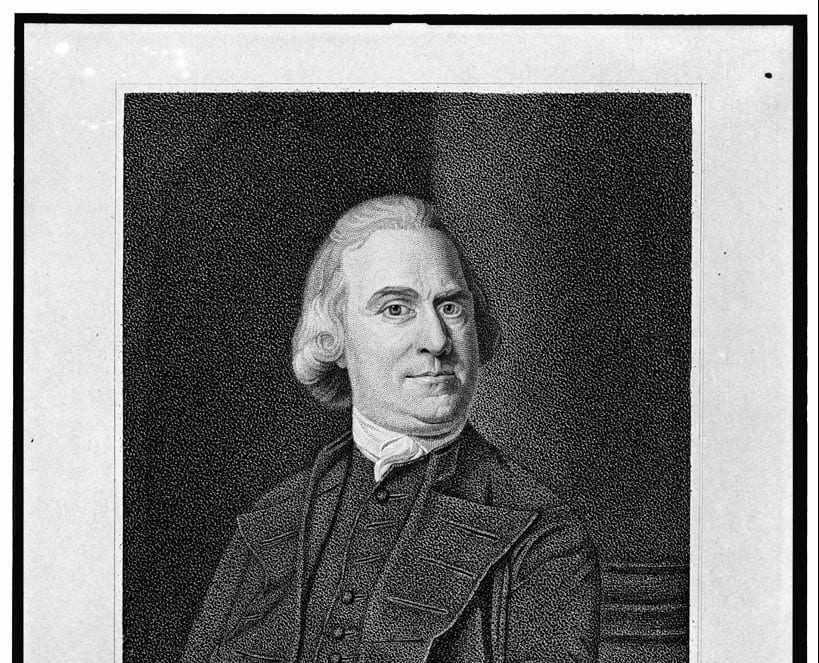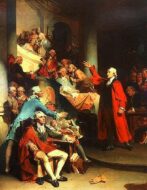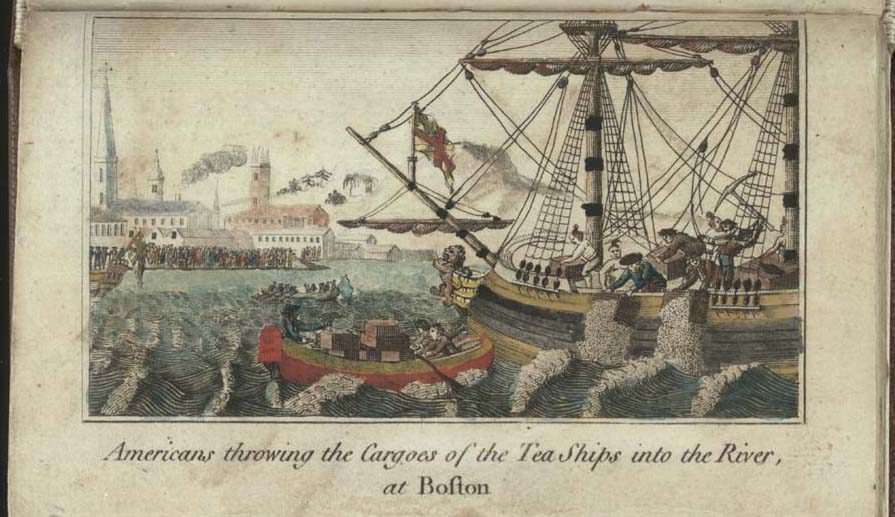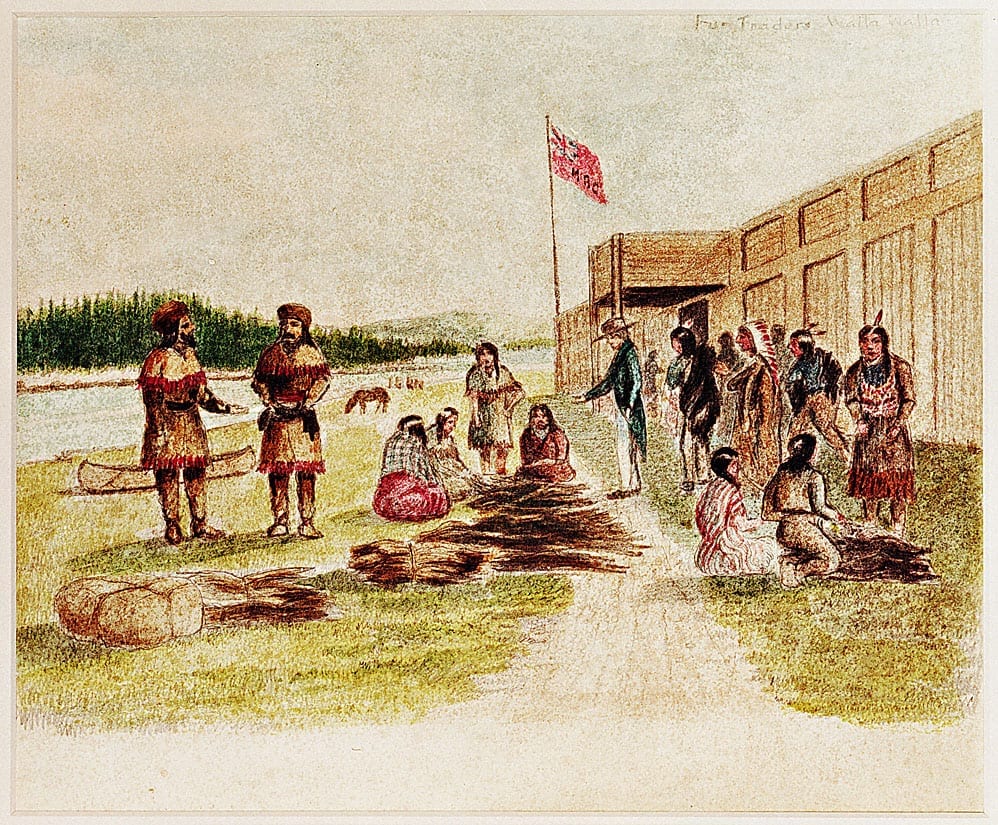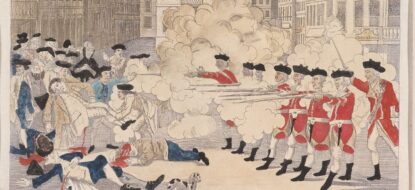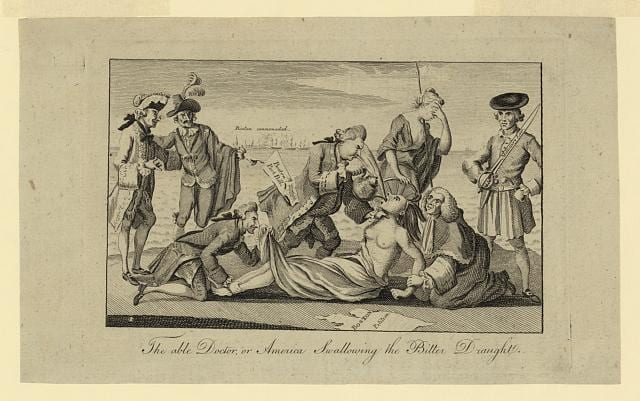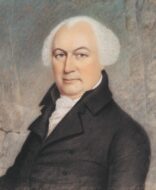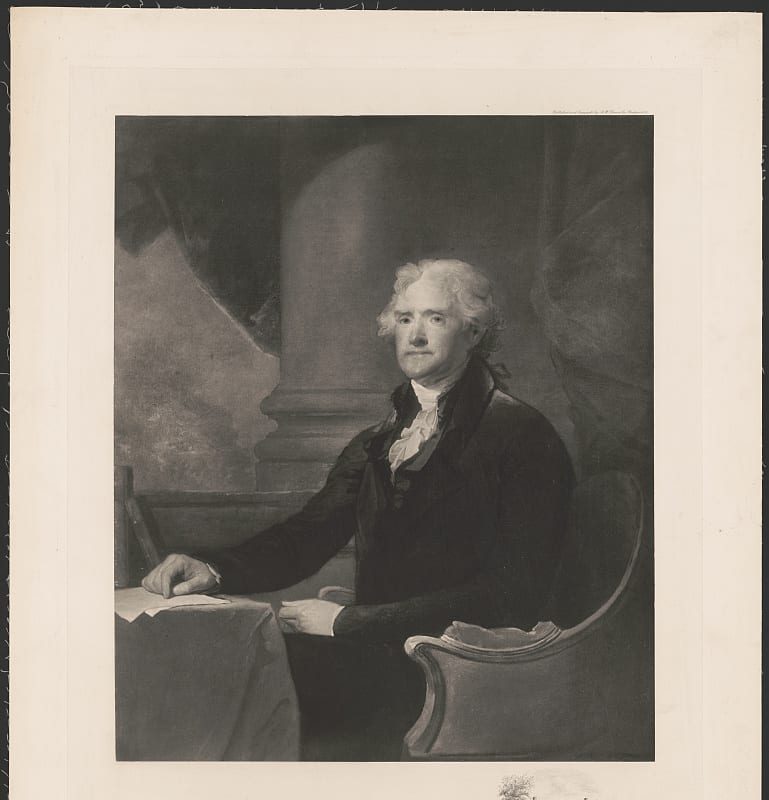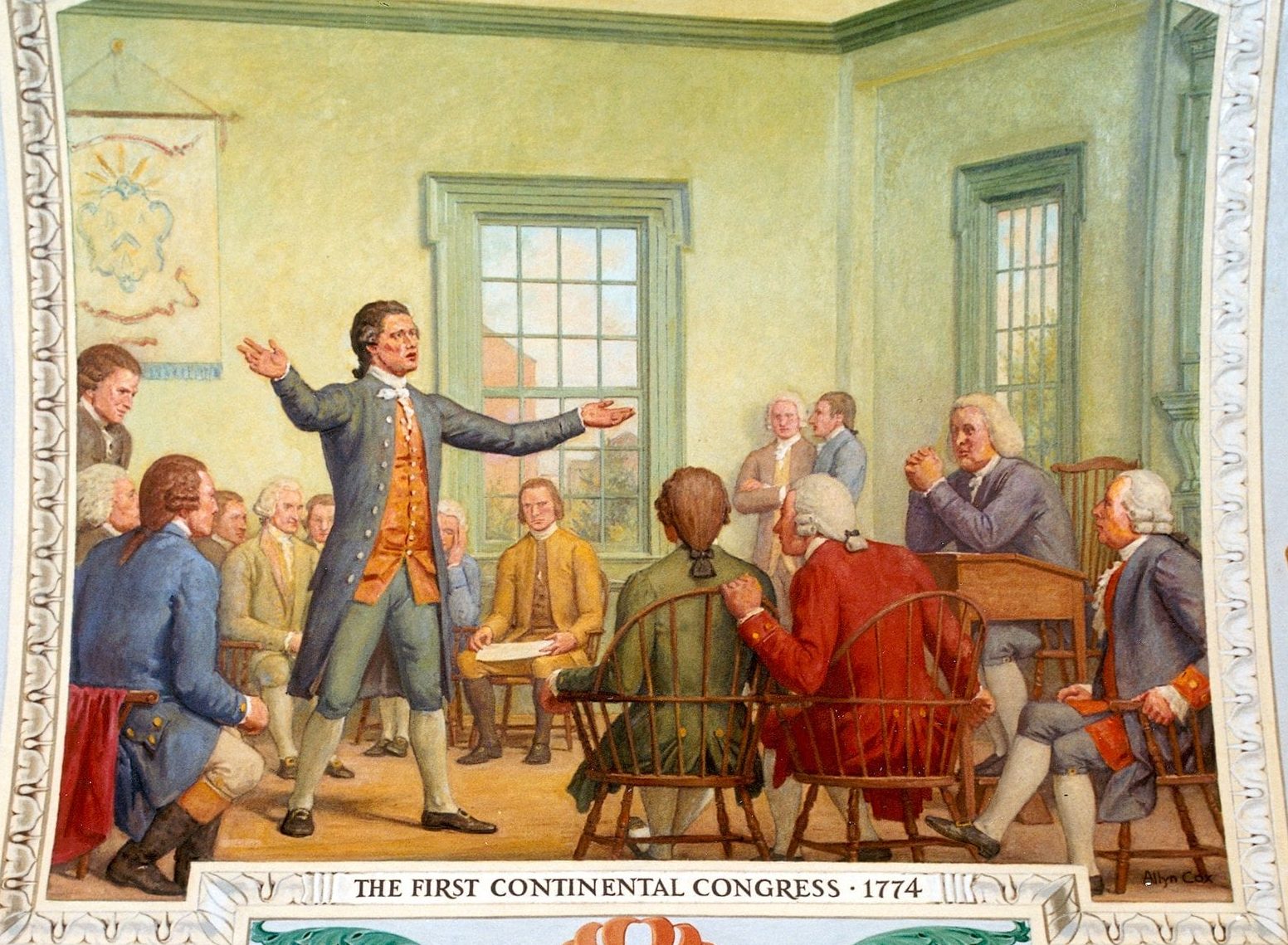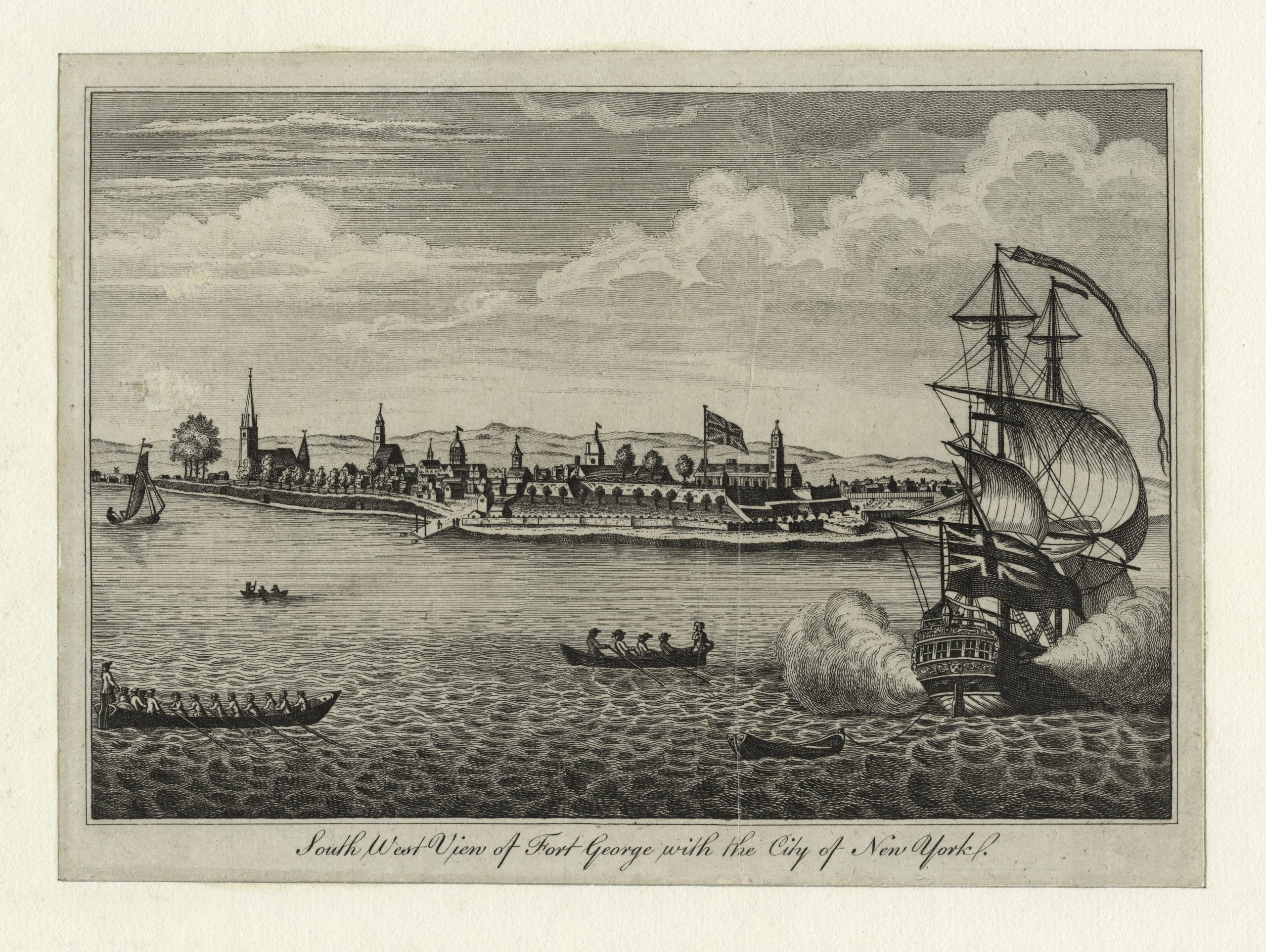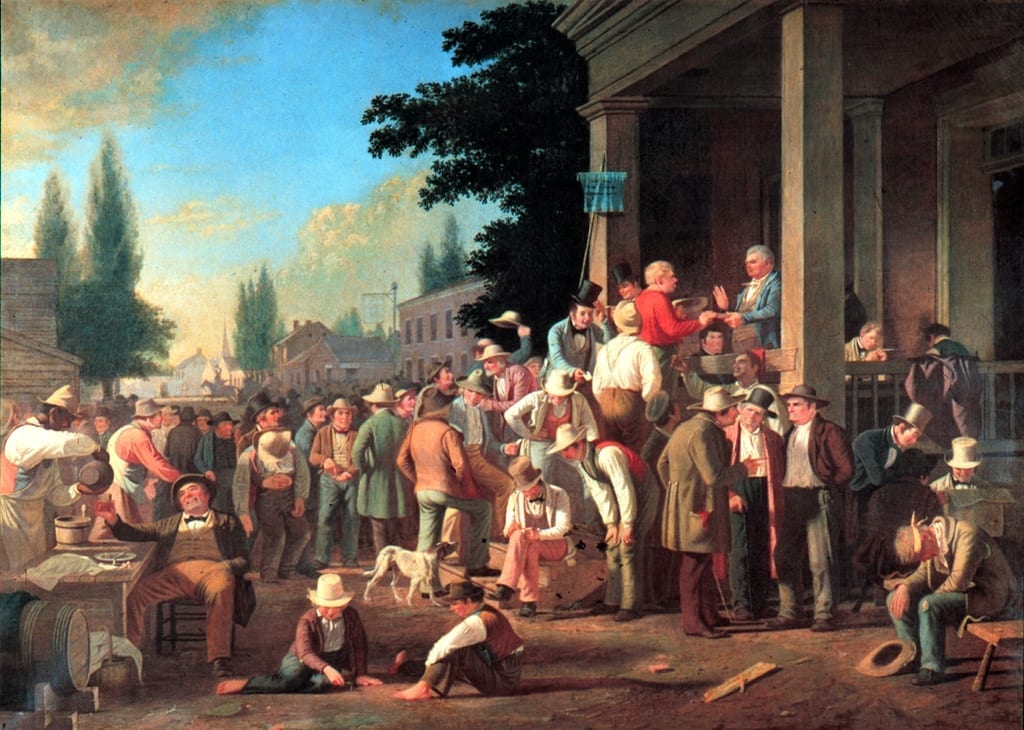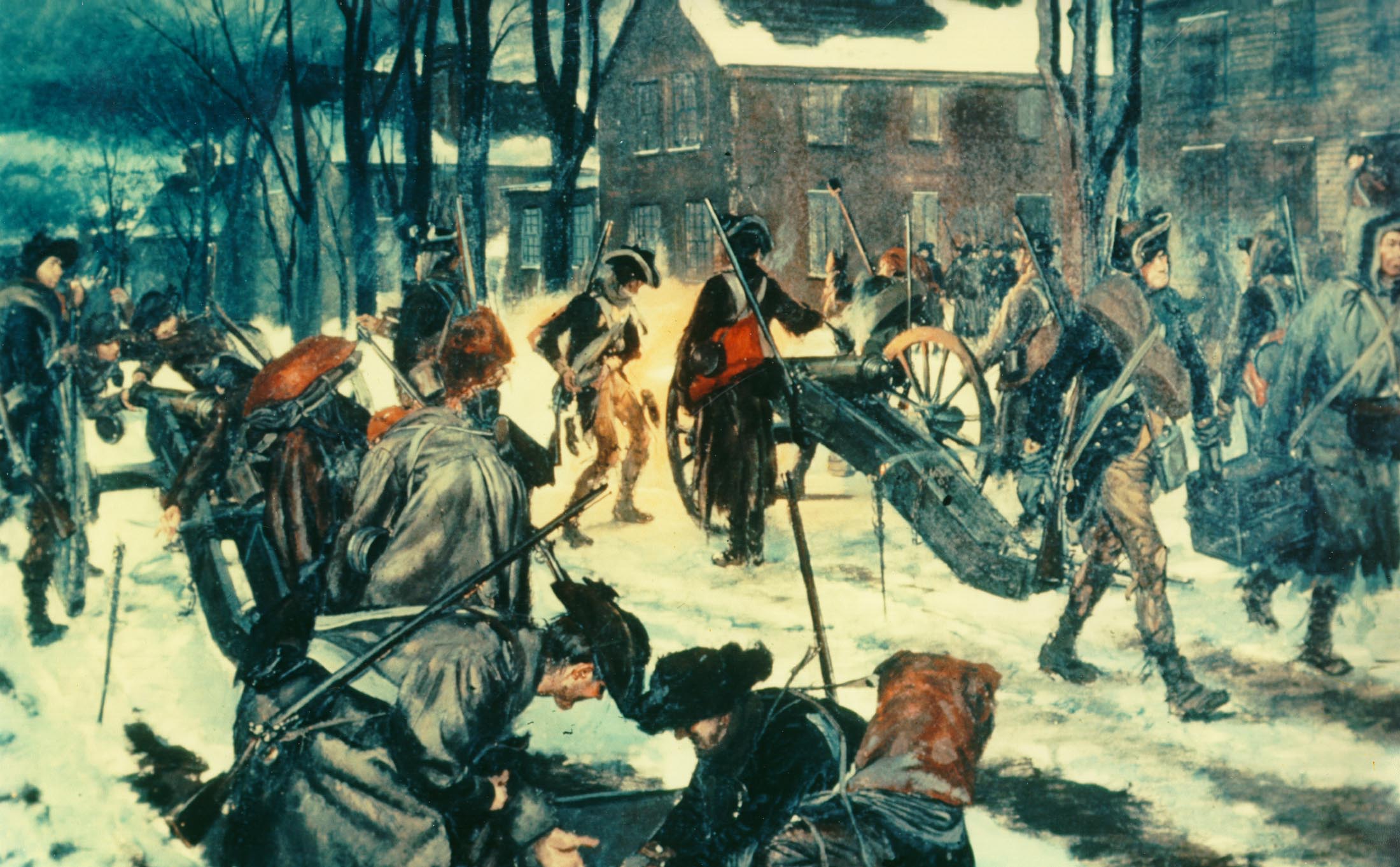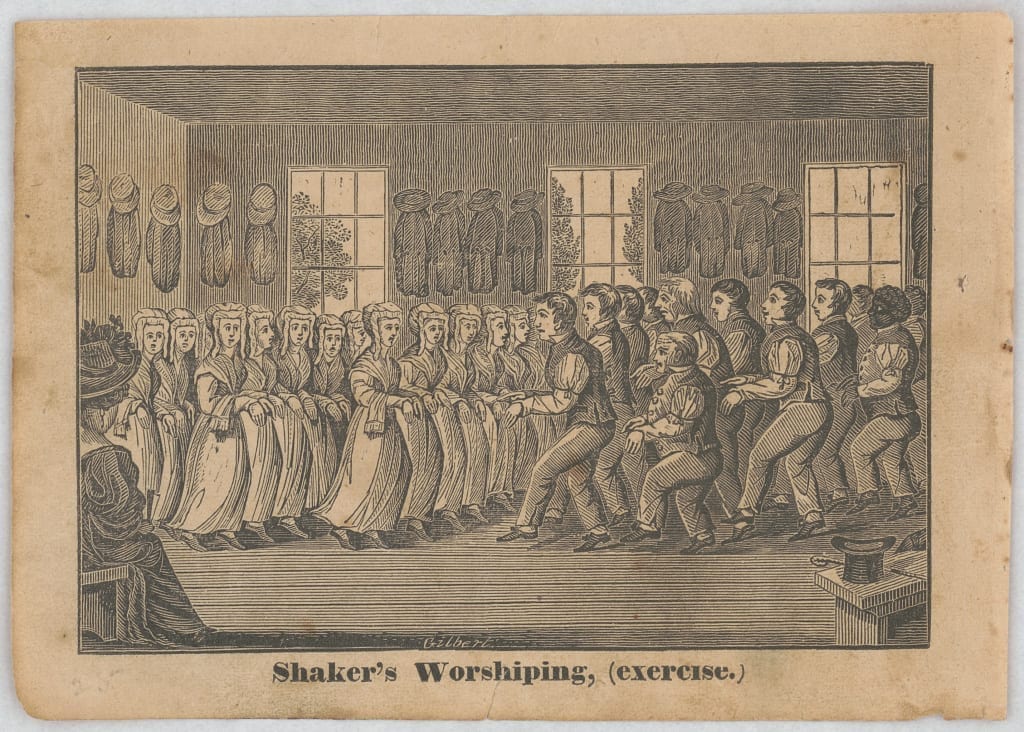
No study questions
No related resources
Chapter 16
Of Conquest
175. THOUGH governments can originally have no other rise than that before mentioned, nor polities be founded on anything but the consent of the people, yet such have been the disorders ambition has filled the world with, that in the noise of war, which makes so great a part of the history of mankind, this consent is little taken notice of; and, therefore, many have mistaken the force of arms for the consent of the people, and reckon conquest as one of the originals of government. But conquest is as far from setting up any government as demolishing a house is from building a new one in the place. Indeed, it often makes way for a new frame of a commonwealth by destroying the former; but, without the consent of the people, can never erect a new one.
176. That the aggressor, who puts himself into the state of war with another, and unjustly invades another man’s right, can, by such an unjust war, never come to have a right over the conquered, will be easily agreed by all men, who will not think that robbers and pirates have a right of empire over whomsoever they have force enough to master, or that men are bound by promises which unlawful force extorts from them. Should a robber break into my house, and, with a dagger at my throat, make me seal deeds to convey my estate to him, would this give him any title? Just such a title by his sword has an unjust conqueror who forces me into submission. The injury and the crime is equal, whether committed by the wearer of a crown or some petty villain. The title of the offender and the number of his followers make no difference in the offence, unless it be to aggravate it. The only difference is, great robbers punish little ones to keep them in their obedience; but the great ones are rewarded with laurels and triumphs, because they are too big for the weak hands of justice in this world, and have the power in their own possession which should punish offenders. What is my remedy against a robber that so broke into my house? Appeal to the law for justice. But perhaps justice is denied, or I am crippled and cannot stir; robbed, and have not the means to do it. If God has taken away all means of seeking remedy, there is nothing left but patience. But my son, when able, may seek the relief of the law, which I am denied; he or his son may renew his appeal till he recover his right. But the conquered, or their children, have no court— no arbitrator on earth to appeal to. Then they may appeal, as Jephtha did, to Heaven, and repeat their appeal till they have recovered the native right of their ancestors, which was to have such a legislative over them as the majority should approve and freely acquiesce in. If it be objected this would cause endless trouble, I answer, no more than justice does, where she lies open to all that appeal to her. He that troubles his neighbour without a cause is punished for it by the justice of the court he appeals to. And he that appeals to Heaven must be sure he has right on his side, and a right, too, that is worth the trouble and cost of the appeal, as he will answer at a tribunal that cannot be deceived, and will be sure to retribute to every one according to the mischiefs he hath created to his fellow—subjects— that is, any part of mankind. From whence it is plain that he that conquers in an unjust war can thereby have no title to the subjection and obedience of the conquered.
177. But supposing victory favours the right side, let us consider a conqueror in a lawful war, and see what power he gets, and over whom.
First, it is plain he gets no power by his conquest over those that conquered with him. They that fought on his side cannot suffer by the conquest, but must, at least, be as much free men as they were before. And most commonly they serve upon terms, and on condition to share with their leader, and enjoy a part of the spoil and other advantages that attend the conquering sword, or, at least, have a part of the subdued country bestowed upon them. And the conquering people are not, I hope, to be slaves by conquest, and wear their laurels only to show they are sacrifices to their leader’s triumph. They that found absolute monarchy upon the title of the sword make their heroes, who are the founders of such monarchies, arrant “draw—can—sirs,” and forget they had any officers and soldiers that fought on their side in the battles they won, or assisted them in the subduing, or shared in possessing the countries they mastered. We are told by some that the English monarchy is founded in the Norman Conquest, and that our princes have thereby a title to absolute dominion, which, if it were true (as by the history it appears otherwise), and that William had a right to make war on this island, yet his dominion by conquest could reach no farther than to the Saxons and Britons that were then inhabitants of this country. The Normans that came with him and helped to conquer, and all descended from them, are free men and no subjects by conquest, let that give what dominion it will. And if I or anybody else shall claim freedom as derived from them, it will be very hard to prove the contrary; and it is plain, the law that has made no distinction between the one and the other intends not there should be any difference in their freedom or privileges.
178. But supposing, which seldom happens, that the conquerors and conquered never incorporate into one people under the same laws and freedom; let us see next what power a lawful conqueror has over the subdued, and that I say is purely despotical. He has an absolute power over the lives of those who, by an unjust war, have forfeited them, but not over the lives or fortunes of those who engaged not in the war, nor over the possessions even of those who were actually engaged in it.
179. Secondly, I say, then, the conqueror gets no power but only over those who have actually assisted, concurred, or consented to that unjust force that is used against him. For the people having given to their governors no power to do an unjust thing, such as is to make an unjust war (for they never had such a power in themselves), they ought not to be charged as guilty of the violence and injustice that is committed in an unjust war any farther than they actually abet it, no more than they are to be thought guilty of any violence or oppression their governors should use upon the people themselves or any part of their fellow—subjects, they having empowered them no more to the one than to the other. Conquerors, it is true, seldom trouble themselves to make the distinction, but they willingly permit the confusion of war to sweep all together; but yet this alters not the right; for the conqueror’s power over the lives of the conquered being only because they have used force to do or maintain an injustice, he can have that power only over those who have concurred in that force; all the rest are innocent, and he has no more title over the people of that country who have done him no injury, and so have made no forfeiture of their lives, than he has over any other who, without any injuries or provocations, have lived upon fair terms with him.
180. Thirdly, the power a conqueror gets over those he overcomes in a just war is perfectly despotical; he has an absolute power over the lives of those who, by putting themselves in a state of war, have forfeited them, but he has not thereby a right and title to their possessions. This I doubt not but at first sight will seem a strange doctrine, it being so quite contrary to the practice of the world; there being nothing more familiar in speaking of the dominion of countries than to say such an one conquered it, as if conquest, without any more ado, conveyed a right of possession. But when we consider that the practice of the strong and powerful, how universal soever it may be, is seldom the rule of right, however it be one part of the subjection of the conquered not to argue against the conditions cut out to them by the conquering swords.
181. Though in all war there be usually a complication of force and damage, and the aggressor seldom fails to harm the estate when he uses force against the persons of those he makes war upon, yet it is the use of force only that puts a man into the state of war. For whether by force he begins the injury, or else having quietly and by fraud done the injury, he refuses to make reparation, and by force maintains it, which is the same thing as at first to have done it by force; it is the unjust use of force that makes the war. For he that breaks open my house and violently turns me out of doors, or having peaceably got in, by force keeps me out, does, in effect, the same thing; supposing we are in such a state that we have no common judge on earth whom I may appeal to, and to whom we are both obliged to submit, for of such I am now speaking. It is the unjust use of force, then, that puts a man into the state of war with another, and thereby he that is guilty of it makes a forfeiture of his life. For quitting reason, which is the rule given between man and man, and using force, the way of beasts, he becomes liable to be destroyed by him he uses force against, as any savage ravenous beast that is dangerous to his being.
182. But because the miscarriages of the father are no faults of the children, who may be rational and peaceable, notwithstanding the brutishness and injustice of the father, the father, by his miscarriages and violence, can forfeit but his own life, and involves not his children in his guilt or destruction. His goods which Nature, that willeth the preservation of all mankind as much as is possible, hath made to belong to the children to keep them from perishing, do still continue to belong to his children. For supposing them not to have joined in the war either through infancy or choice, they have done nothing to forfeit them, nor has the conqueror any right to take them away by the bare right of having subdued him that by force attempted his destruction, though, perhaps, he may have some right to them to repair the damages he has sustained by the war, and the defence of his own right, which how far it reaches to the possessions of the conquered we shall see by—and—by; so that he that by conquest has a right over a man’s person, to destroy him if he pleases, has not thereby a right over his estate to possess and enjoy it. For it is the brutal force the aggressor has used that gives his adversary a right to take away his life and destroy him, if he pleases, as a noxious creature; but it is damage sustained that alone gives him title to another man’s goods; for though I may kill a thief that sets on me in the highway, yet I may not (which seems less) take away his money and let him go; this would be robbery on my side. His force, and the state of war he put himself in, made him forfeit his life, but gave me no title to his goods. The right, then, of conquest extends only to the lives of those who joined in the war, but not to their estates, but only in order to make reparation for the damages received and the charges of the war, and that, too, with reservation of the right of the innocent wife and children.
183. Let the conqueror have as much justice on his side as could be supposed, he has no right to seize more than the vanquished could forfeit; his life is at the victor’s mercy, and his service and goods he may appropriate to make himself reparation; but he cannot take the goods of his wife and children, they too had a title to the goods he enjoyed, and their shares in the estate he possessed. For example, I in the state of Nature (and all commonwealths are in the state of Nature one with another) have injured another man, and refusing to give satisfaction, it is come to a state of war wherein my defending by force what I had gotten unjustly makes me the aggressor. I am conquered; my life, it is true, as forfeit, is at mercy, but not my wife’s and children’s. They made not the war, nor assisted in it. I could not forfeit their lives, they were not mine to forfeit. My wife had a share in my estate, that neither could I forfeit. And my children also, being born of me, had a right to be maintained out of my labour or substance. Here then is the case: The conqueror has a title to reparation for damages received, and the children have a title to their father’s estate for their subsistence. For as to the wife’s share, whether her own labour or compact gave her a title to it, it is plain her husband could not forfeit what was hers. What must be done in the case? I answer: The fundamental law of Nature being that all, as much as may be, should be preserved, it follows that if there be not enough fully to satisfy both— viz., for the conqueror’s losses and children’s maintenance, he that hath and to spare must remit something of his full satisfaction, and give way to the pressing and preferable title of those who are in danger to perish without it.
184. But supposing the charge and damages of the war are to be made up to the conqueror to the utmost farthing, and that the children of the vanquished, spoiled of all their father’s goods, are to be left to starve and perish, yet the satisfying of what shall, on this score, be due to the conqueror will scarce give him a title to any country he shall conquer. For the damages of war can scarce amount to the value of any considerable tract of land in any part of the world, where all the land is possessed, and none lies waste. And if I have not taken away the conqueror’s land which, being vanquished, it is impossible I should, scarce any other spoil I have done him can amount to the value of mine, supposing it of an extent any way coming near what I had overrun of his, and equally cultivated too. The destruction of a year’s product or two (for it seldom reaches four or five) is the utmost spoil that usually can be done. For as to money, and such riches and treasure taken away, these are none of Nature’s goods, they have but a phantastical imaginary value; Nature has put no such upon them. They are of no more account by her standard than the Wampompeke of the Americans to an European prince, or the silver money of Europe would have been formerly to an American. And five years’ product is not worth the perpetual inheritance of land, where all is possessed and none remains waste, to be taken up by him that is disseised, which will be easily granted, if one do but take away the imaginary value of money, the disproportion being more than between five and five thousand; though, at the same time, half a year’s product is more worth than the inheritance where, there being more land than the inhabitants possess and make use of, any one has liberty to make use of the waste. But their conquerors take little care to possess themselves of the lands of the vanquished. No damage therefore that men in the state of Nature (as all princes and governments are in reference to one another) suffer from one another can give a conqueror power to dispossess the posterity of the vanquished, and turn them out of that inheritance which ought to be the possession of them and their descendants to all generations. The conqueror indeed will be apt to think himself master; and it is the very condition of the subdued not to be able to dispute their right. But, if that be all, it gives no other title than what bare force gives to the stronger over the weaker; and, by this reason, he that is strongest will have a right to whatever he pleases to seize on.
185. Over those, then, that joined with him in the war, and over those of the subdued country that opposed him not, and the posterity even of those that did, the conqueror, even in a just war, hath, by his conquest, no right of dominion. They are free from any subjection to him, and if their former government be dissolved, they are at liberty to begin and erect another to themselves.
186. The conqueror, it is true, usually by the force he has over them, compels them, with a sword at their breasts, to stoop to his conditions, and submit to such a government as he pleases to afford them; but the inquiry is, what right he has to do so? If it be said they submit by their own consent, then this allows their own consent to be necessary to give the conqueror a title to rule over them. It remains only to be considered whether promises, extorted by force, without right, can be thought consent, and how far they bind. To which I shall say, they bind not at all; because whatsoever another gets from me by force, I still retain the right of, and he is obliged presently to restore. He that forces my horse from me ought presently to restore him, and I have still a right to retake him. By the same reason, he that forced a promise from me ought presently to restore it— i.e., quit me of the obligation of it; or I may resume it myself— i.e., choose whether I will perform it. For the law of Nature laying an obligation on me, only by the rules she prescribes, cannot oblige me by the violation of her rules; such is the extorting anything from me by force. Nor does it at all alter the case, to say I gave my promise, no more than it excuses the force, and passes the right, when I put my hand in my pocket and deliver my purse myself to a thief who demands it with a pistol at my breast.
187. From all which it follows that the government of a conqueror, imposed by force on the subdued, against whom he had no right of war, or who joined not in the war against him, where he had right, has no obligation upon them.
188. But let us suppose that all the men of that community being all members of the same body politic, may be taken to have joined in that unjust war, wherein they are subdued, and so their lives are at the mercy of the conqueror.
189. I say this concerns not their children who are in their minority. For since a father hath not, in himself, a power over the life or liberty of his child, no act of his can possibly forfeit it; so that the children, whatever may have happened to the fathers, are free men, and the absolute power of the conqueror reaches no farther than the persons of the men that were subdued by him, and dies with them; and should he govern them as slaves, subjected to his absolute, arbitrary power, he has no such right of dominion over their children. He can have no power over them but by their own consent, whatever he may drive them to say or do, and he has no lawful authority, whilst force, and not choice, compels them to submission.
190. Every man is born with a double right. First, a right of freedom to his person, which no other man has a power over, but the free disposal of it lies in himself. Secondly, a right before any other man, to inherit, with his brethren, his father’s goods.
191. By the first of these, a man is naturally free from subjection to any government, though he be born in a place under its jurisdiction. But if he disclaim the lawful government of the country he was born in, he must also quit the right that belonged to him, by the laws of it, and the possessions there descending to him from his ancestors, if it were a government made by their consent.
192. By the second, the inhabitants of any country, who are descended and derive a title to their estates from those who are subdued, and had a government forced upon them, against their free consents, retain a right to the possession of their ancestors, though they consent not freely to the government, whose hard conditions were, by force, imposed on the possessors of that country. For the first conqueror never having had a title to the land of that country, the people, who are the descendants of, or claim under those who were forced to submit to the yoke of a government by constraint, have always a right to shake it off, and free themselves from the usurpation or tyranny the sword hath brought in upon them, till their rulers put them under such a frame of government as they willingly and of choice consent to (which they can never be supposed to do, till either they are put in a full state of liberty to choose their government and governors, or at least till they have such standing laws to which they have, by themselves or their representatives, given their free consent, and also till they are allowed their due property, which is so to be proprietors of what they have that nobody can take away any part of it without their own consent, without which, men under any government are not in the state of free men, but are direct slaves under the force of war). And who doubts but the Grecian Christians, descendants of the ancient possessors of that country, may justly cast off the Turkish yoke they have so long groaned under, whenever they have a power to do it?
193. But granting that the conqueror, in a just war, has a right to the estates, as well as power over the persons of the conquered, which, it is plain, he hath not, nothing of absolute power will follow from hence in the continuance of the government. Because the descendants of these being all free men, if he grants them estates and possessions to inhabit his country, without which it would be worth nothing, whatsoever he grants them they have so far as it is granted property in; the nature whereof is, that, without a man’s own consent, it cannot be taken from him.
194. Their persons are free by a native right, and their properties, be they more or less, are their own, and at their own dispose, and not at his; or else it is no property. Supposing the conqueror gives to one man a thousand acres, to him and his heirs for ever; to another he lets a thousand acres, for his life, under the rent of L50 or L500 per annum. Has not the one of these a right to his thousand acres for ever, and the other during his life, paying the said rent? And hath not the tenant for life a property in all that he gets over and above his rent, by his labour and industry, during the said term, supposing it be double the rent? Can any one say, the king, or conqueror, after his grant, may, by his power of conqueror, take away all, or part of the land, from the heirs of one, or from the other during his life, he paying the rent? Or, can he take away from either the goods or money they have got upon the said land at his pleasure? If he can, then all free and voluntary contracts cease, and are void in the world; there needs nothing but power enough to dissolve them at any time, and all the grants and promises of men in power are but mockery and collusion. For can there be anything more ridiculous than to say, I give you and yours this for ever, and that in the surest and most solemn way of conveyance can be devised, and yet it is to be understood that I have right, if I please, to take it away from you again to—morrow?
195. I will not dispute now whether princes are exempt from the laws of their country, but this I am sure, they owe subjection to the laws of God and Nature. Nobody, no power can exempt them from the obligations of that eternal law. Those are so great and so strong in the case of promises, that Omnipotency itself can be tied by them. Grants, promises, and oaths are bonds that hold the Almighty, whatever some flatterers say to princes of the world, who, all together, with all their people joined to them, are, in comparison of the great God, but as a drop of the bucket, or a dust on the balance— inconsiderable, nothing!
196. The short of the case in conquest, is this: The conqueror, if he have a just cause, has a despotical right over the persons of all that actually aided and concurred in the war against him, and a right to make up his damage and cost out of their labour and estates, so he injure not the right of any other. Over the rest of the people, if there were any that consented not to the war, and over the children of the captives themselves or the possessions of either he has no power, and so can have, by virtue of conquest, no lawful title himself to dominion over them, or derive it to his posterity; but is an aggressor, and puts himself in a state of war against them, and has no better a right of principality, he, nor any of his successors, than Hingar, or Hubba, the Danes, had here in England, or Spartacus, had be conquered Italy, which is to have their yoke cast off as soon as God shall give those under their subjection courage and opportunity to do it. Thus, notwithstanding whatever title the kings of Assyria had over Judah, by the sword, God assisted Hezekiah to throw off the dominion of that conquering empire. “And the Lord was with Hezekiah, and he prospered; wherefore he went forth, and he rebelled against the king of Assyria, and served him not” (II Kings 18. 7). Whence it is plain that shaking off a power which force, and not right, hath set over any one, though it hath the name of rebellion, yet is no offence before God, but that which He allows and countenances, though even promises and covenants, when obtained by force, have intervened. For it is very probable, to any one that reads the story of Ahaz and Hezekiah attentively, that the Assyrians subdued Ahaz, and deposed him, and made Hezekiah king in his ather’s lifetime, and that Hezekiah, by agreement, had done him homage, and paid him tribute till this time.
Chapter 17
Of Usurpation
197. As conquest may be called a foreign usurpation, so usurpation is a kind of domestic conquest, with this difference— that an usurper can never have right on his side, it being no usurpation but where one is got into the possession of what another has right to. This, so far as it is usurpation, is a change only of persons, but not of the forms and rules of the government; for if the usurper extend his power beyond what, of right, belonged to the lawful princes or governors of the commonwealth, it is tyranny added to usurpation.
198. In all lawful governments the designation of the persons who are to bear rule being as natural and necessary a part as the form of the government itself, and that which had its establishment originally from the people— the anarchy being much alike, to have no form of government at all, or to agree that it shall be monarchical, yet appoint no way to design the person that shall have the power and be the monarch— all commonwealths, therefore, with the form of government established, have rules also of appointing and conveying the right to those who are to have any share in the public authority; and whoever gets into the exercise of any part of the power by other ways than what the laws of the community have prescribed hath no right to be obeyed, though the form of the commonwealth be still preserved, since he is not the person the laws have appointed, and, consequently, not the person the people have consented to. Nor can such an usurper, or any deriving from him, ever have a title till the people are both at liberty to consent, and have actually consented, to allow and confirm in him the power he hath till then usurped.
Chapter 18
Of Tyranny
199. As usurpation is the exercise of power which another hath a right to, so tyranny is the exercise of power beyond right, which nobody can have a right to; and this is making use of the power any one has in his hands, not for the good of those who are under it, but for his own private, separate advantage. When the governor, however entitled, makes not the law, but his will, the rule, and his commands and actions are not directed to the preservation of the properties of his people, but the satisfaction of his own ambition, revenge, covetousness, or any other irregular passion.
200. If one can doubt this to be truth or reason because it comes from the obscure hand of a subject, I hope the authority of a king will make it pass with him. King James, in his speech to the Parliament, 16O3, tells them thus: “I will ever prefer the weal of the public and of the whole commonwealth, in making of good laws and constitutions, to any particular and private ends of mine, thinking ever the wealth and weal of the commonwealth to be my greatest weal and worldly felicity— a point wherein a lawful king doth directly differ from a tyrant; for I do acknowledge that the special and greatest point of difference that is between a rightful king and an usurping tyrant is this— that whereas the proud and ambitious tyrant doth think his kingdom and people are only ordained for satisfaction of his desires and unreasonable appetites, the righteous and just king doth, by the contrary, acknowledge himself to be ordained for the procuring of the wealth and property of his people.” And again, in his speech to the Parliament, 1609, he hath these words: “The king binds himself, by a double oath, to the observation of the fundamental laws of his kingdom— tacitly, as by being a king, and so bound to protect, as well the people as the laws of his kingdom; and expressly by his oath at his coronation; so as every just king, in a settled kingdom, is bound to observe that paction made to his people, by his laws, in framing his government agreeable thereunto, according to that paction which God made with Noah after the deluge: ’Hereafter, seed—time, and harvest, and cold, and heat, and summer, and winter, and day, and night, shall not cease while the earth remaineth.’ And therefore a king, governing in a settled kingdom, leaves to be a king, and degenerates into a tyrant, as soon as he leaves off to rule according to his laws.” And a little after: “Therefore, all kings that are not tyrants, or perjured, will be glad to bound themselves within the limits of their laws, and they that persuade them the contrary are vipers, pests, both against them and the commonwealth.” Thus, that learned king, who well understood the notions of things, makes the difference betwixt a king and a tyrant to consist only in this: that one makes the laws the bounds of his power and the good of the public the end of his government; the other makes all give way to his own will and appetite.
201. It is a mistake to think this fault is proper only to monarchies. Other forms of government are liable to it as well as that; for wherever the power that is put in any hands for the government of the people and the preservation of their properties is applied to other ends, and made use of to impoverish, harass, or subdue them to the arbitrary and irregular commands of those that have it, there it presently becomes tyranny, whether those that thus use it are one or many. Thus we read of the thirty tyrants at Athens, as well as one at Syracuse; and the intolerable dominion of the Decemviri at Rome was nothing better.
202. Wherever law ends, tyranny begins, if the law be transgressed to another’s harm; and whosoever in authority exceeds the power given him by the law, and makes use of the force he has under his command to compass that upon the subject which the law allows not, ceases in that to be a magistrate, and acting without authority may be opposed, as any other man who by force invades the right of another. This is acknowledged in subordinate magistrates. He that hath authority to seize my person in the street may be opposed as a thief and a robber if he endeavours to break into my house to execute a writ, notwithstanding that I know he has such a warrant and such a legal authority as will empower him to arrest me abroad. And why this should not hold in the highest, as well as in the most inferior magistrate, I would gladly be informed. Is it reasonable that the eldest brother, because he has the greatest part of his father’s estate, should thereby have a right to take away any of his younger brothers’ portions? Or that a rich man, who possessed a whole country, should from thence have a right to seize, when he pleased, the cottage and garden of his poor neighbour? The being rightfully possessed of great power and riches, exceedingly beyond the greatest part of the sons of Adam, is so far from being an excuse, much less a reason for rapine and oppression, which the endamaging another without authority is, that it is a great aggravation of it. For exceeding the bounds of authority is no more a right in a great than a petty officer, no more justifiable in a king than a constable. But so much the worse in him as that he has more trust put in him, is supposed, from the advantage of education and counsellors, to have better knowledge and less reason to do it, having already a greater share than the rest of his brethren.
203. May the commands, then, of a prince be opposed? May he be resisted, as often as any one shall find himself aggrieved, and but imagine he has not right done him? This will unhinge and overturn all polities, and instead of government and order, leave nothing but anarchy and confusion.
204. To this I answer: That force is to be opposed to nothing but to unjust and unlawful force. Whoever makes any opposition in any other case draws on himself a just condemnation, both from God and man; and so no such danger or confusion will follow, as is often suggested. For—
205. First. As in some countries the person of the prince by the law is sacred, and so whatever he commands or does, his person is still free from all question or violence, not liable to force, or any judicial censure or condemnation. But yet opposition may be made to the illegal acts of any inferior officer or other commissioned by him, unless he will, by actually putting himself into a state of war with his people, dissolve the government, and leave them to that defence, which belongs to every one in the state of Nature. For of such things, who can tell what the end will be? And a neighbour kingdom has showed the world an odd example. In all other cases the sacredness of the person exempts him from all inconveniencies, whereby he is secure, whilst the government stands, from all violence and harm whatsoever, than which there cannot be a wiser constitution. For the harm he can do in his own person not being likely to happen often, nor to extend itself far, nor being able by his single strength to subvert the laws nor oppress the body of the people, should any prince have so much weakness and ill—nature as to be willing to do it. The inconveniency of some particular mischiefs that may happen sometimes when a heady prince comes to the throne are well recompensed by the peace of the public and security of the government in the person of the chief magistrate, thus set out of the reach of danger; it being safer for the body that some few private men should be sometimes in danger to suffer than that the head of the republic should be easily and upon slight occasions exposed.
206. Secondly. But this privilege, belonging only to the king’s person, hinders not but they may be questioned, opposed, and resisted, who use unjust force, though they pretend a commission from him which the law authorises not; as is plain in the case of him that has the king’s writ to arrest a man which is a full commission from the king, and yet he that has it cannot break open a man’s house to do it, nor execute this command of the king upon certain days nor in certain places, though this commission have no such exception in it; but they are the limitations of the law, which, if any one transgress, the king’s commission excuses him not. For the king’s authority being given him only by the law, he cannot empower any one to act against the law, or justify him by his commission in so doing. The commission or command of any magistrate where he has no authority, being as void and insignificant as that of any private man, the difference between the one and the other being that the magistrate has some authority so far and to such ends, and the private man has none at all; for it is not the commission but the authority that gives the right of acting, and against the laws there can be no authority. But notwithstanding such resistance, the king’s person and authority are still both secured, and so no danger to governor or government.
207. Thirdly. Supposing a government wherein the person of the chief magistrate is not thus sacred, yet this doctrine of the lawfulness of resisting all unlawful exercises of his power will not, upon every slight occasion, endanger him or embroil the government; for where the injured party may be relieved and his damages repaired by appeal to the law, there can be no pretence for force, which is only to be used where a man is intercepted from appealing to the law. For nothing is to be accounted hostile force but where it leaves not the remedy of such an appeal. and it is such force alone that puts him that uses it into a state of war, and makes it lawful to resist him. A man with a sword in his hand demands my purse on the highway, when perhaps I have not 12d. in my pocket. This man I may lawfully kill. To another I deliver L100 to hold only whilst I alight, which he refuses to restore me when I am got up again, but draws his sword to defend the possession of it by force. I endeavour to retake it. The mischief this man does me is a hundred, or possibly a thousand times more than the other perhaps intended me (whom I killed before he really did me any); and yet I might lawfully kill the one and cannot so much as hurt the other lawfully. The reason whereof is plain; because the one using force which threatened my life, I could not have time to appeal to the law to secure it, and when it was gone it was too late to appeal. The law could not restore life to my dead carcass. The loss was irreparable; which to prevent the law of Nature gave me a right to destroy him who had put himself into a state of war with me and threatened my destruction. But in the other case, my life not being in danger, I might have the benefit of appealing to the law, and have reparation for my L100 that way.
208. Fourthly. But if the unlawful acts done by the magistrate be maintained (by the power he has got), and the remedy, which is due by law, be by the same power obstructed, yet the right of resisting, even in such manifest acts of tyranny, will not suddenly, or on slight occasions, disturb the government. For if it reach no farther than some private men’s cases, though they have a right to defend themselves, and to recover by force what by unlawful force is taken from them, yet the right to do so will not easily engage them in a contest wherein they are sure to perish; it being as impossible for one or a few oppressed men to disturb the government where the body of the people do not think themselves concerned in it, as for a raving madman or heady malcontent to overturn a well—settled state, the people being as little apt to follow the one as the other.
209. But if either these illegal acts have extended to the majority of the people, or if the mischief and oppression has light only on some few, but in such cases as the precedent and consequences seem to threaten all, and they are persuaded in their consciences that their laws, and with them, their estates, liberties, and lives are in danger, and perhaps their religion too, how they will be hindered from resisting illegal force used against them I cannot tell. This is an inconvenience, I confess, that attends all governments whatsoever, when the governors have brought it to this pass, to be generally suspected of their people, the most dangerous state they can possibly put themselves in; herein they are the less to be pitied, because it is so easy to be avoided. It being as impossible for a governor, if he really means the good of his people, and the preservation of them and their laws together, not to make them see and feel it, as it is for the father of a family not to let his children see he loves and takes care of them.
210. But if all the world shall observe pretences of one kind, and actions of another, arts used to elude the law, and the trust of prerogative (which is an arbitrary power in some things left in the prince’s hand to do good, not harm, to the people) employed contrary to the end for which it was given; if the people shall find the ministers and subordinate magistrates chosen, suitable to such ends, and favoured or laid by proportionably as they promote or oppose them; if they see several experiments made of arbitrary power, and that religion underhand favoured, though publicly proclaimed against, which is readiest to introduce it, and the operators in it supported as much as may be; and when that cannot be done, yet approved still, and liked the better, and a long train of acting show the counsels all tending that way, how can a man any more hinder himself from being persuaded in his own mind which way things are going; or, from casting about how to save himself, than he could from believing the captain of a ship he was in was carrying him and the rest of the company to Algiers, when he found him always steering that course, though cross winds, leaks in his ship, and want of men and provisions did often force him to turn his course another way for some time, which he steadily returned to again as soon as the wind, weather, and other circumstances would let him?
Chapter 19
Of the Dissolution of Government
211. HE that will, with any clearness, speak of the dissolution of government, ought in the first place to distinguish between the dissolution of the society and the dissolution of the government. That which makes the community, and brings men out of the loose state of Nature into one politic society, is the agreement which every one has with the rest to incorporate and act as one body, and so be one distinct commonwealth. The usual, and almost only way whereby this union is dissolved, is the inroad of foreign force making a conquest upon them. For in that case (not being able to maintain and support themselves as one entire and independent body) the union belonging to that body, which consisted therein, must necessarily cease, and so every one return to the state he was in before, with liberty to shift for himself and provide for his own safety, as he thinks fit, in some other society. Whenever the society is dissolved, it is certain the government of that society cannot remain. Thus conquerors’ swords often cut up governments by the roots, and mangle societies to pieces, separating the subdued or scattered multitude from the protection of and dependence on that society which ought to have preserved them from violence. The world is too well instructed in, and too forward to allow of this way of dissolving of governments, to need any more to be said of it; and there wants not much argument to prove that where the society is dissolved, the government cannot remain; that being as impossible as for the frame of a house to subsist when the materials of it are scattered and displaced by a whirlwind, or jumbled into a confused heap by an earthquake.
212. Besides this overturning from without, governments are dissolved from within:
First. When the legislative is altered, civil society being a state of peace amongst those who are of it, from whom the state of war is excluded by the umpirage which they have provided in their legislative for the ending all differences that may arise amongst any of them; it is in their legislative that the members of a commonwealth are united and combined together into one coherent living body. This is the soul that gives form, life, and unity to the commonwealth; from hence the several members have their mutual influence, sympathy, and connection; and therefore when the legislative is broken, or dissolved, dissolution and death follows. For the essence and union of the society consisting in having one will, the legislative, when once established by the majority, has the declaring and, as it were, keeping of that will. The constitution of the legislative is the first and fundamental act of society, whereby provision is made for the continuation of their union under the direction of persons and bonds of laws, made by persons authorised thereunto, by the consent and appointment of the people, without which no one man, or number of men, amongst them can have authority of making laws that shall be binding to the rest. When any one, or more, shall take upon them to make laws whom the people have not appointed so to do, they make laws without authority, which the people are not therefore bound to obey; by which means they come again to be out of subjection, and may constitute to themselves a new legislative, as they think best, being in full liberty to resist the force of those who, without authority, would impose anything upon them. Every one is at the disposure of his own will, when those who had, by the delegation of the society, the declaring of the public will, are excluded from it, and others usurp the place who have no such authority or delegation.
213. This being usually brought about by such in the commonwealth, who misuse the power they have, it is hard to consider it aright, and know at whose door to lay it, without knowing the form of government in which it happens. Let us suppose, then, the legislative placed in the concurrence of three distinct persons:— First, a single hereditary person having the constant, supreme, executive power, and with it the power of convoking and dissolving the other two within certain periods of time. Secondly, an assembly of hereditary nobility. Thirdly, an assembly of representatives chosen, pro tempore, by the people. Such a form of government supposed, it is evident:
214. First, that when such a single person or prince sets up his own arbitrary will in place of the laws which are the will of the society declared by the legislative, then the legislative is changed. For that being, in effect, the legislative whose rules and laws are put in execution, and required to be obeyed, when other laws are set up, and other rules pretended and enforced than what the legislative, constituted by the society, have enacted, it is plain that the legislative is changed. Whoever introduces new laws, not being thereunto authorised, by the fundamental appointment of the society, or subverts the old, disowns and overturns the power by which they were made, and so sets up a new
legislative.
215. Secondly, when the prince hinders the legislative from assembling in its due time, or from acting freely, pursuant to those ends for which it was constituted, the legislative is altered. For it is not a certain number of men— no, nor their meeting, unless they have also freedom of debating and leisure of perfecting what is for the good of the society, wherein the legislative consists; when these are taken away, or altered, so as to deprive the society of the due exercise of their power, the legislative is truly altered. For it is not names that constitute governments, but the use and exercise of those powers that were intended to accompany them; so that he who takes away the freedom, or hinders the acting of the legislative in its due seasons, in effect takes away the legislative, and puts an end to the government.
216. Thirdly, when, by the arbitrary power of the prince, the electors or ways of election are altered without the consent and contrary to the common interest of the people, there also the legislative is altered. For if others than those whom the society hath authorised thereunto do choose, or in another way than what the society hath prescribed, those chosen are not the legislative appointed by the people.
217. Fourthly, the delivery also of the people into the subjection of a foreign power, either by the prince or by the legislative, is certainly a change of the legislative, and so a dissolution of the government. For the end why people entered into society being to be preserved one entire, free, independent society to be governed by its own laws, this is lost whenever they are given up into the power of another.
218. Why, in such a constitution as this, the dissolution of the government in these cases is to be imputed to the prince is evident, because he, having the force, treasure, and offices of the State to employ, and often persuading himself or being flattered by others, that, as supreme magistrate, he is incapable of control; he alone is in a condition to make great advances towards such changes under pretence of lawful authority, and has it in his hands to terrify or suppress opposers as factious, seditious, and enemies to the government; whereas no other part of the legislative, or people, is capable by themselves to attempt any alteration of the legislative without open and visible rebellion, apt enough to be taken notice of, which, when it prevails, produces effects very little different from foreign conquest. Besides, the prince, in such a form of government, having the power of dissolving the other parts of the legislative, and thereby rendering them private persons, they can never, in opposition to him, or without his concurrence, alter the legislative by a law, his consent being necessary to give any of their decrees that sanction. But yet so far as the other parts of the legislative any way contribute to any attempt upon the government, and do either promote, or not, what lies in them, hinder such designs, they are guilty, and partake in this, which is certainly the greatest crime men can be guilty of one towards another.
219. There is one way more whereby such a government may be dissolved, and that is: When he who has the supreme executive power neglects and abandons that charge, so that the laws already made can no longer be put in execution; this is demonstratively to reduce all to anarchy, and so effectively to dissolve the government. For laws not being made for themselves, but to be, by their execution, the bonds of the society to keep every part of the body politic in its due place and function. When that totally ceases, the government visibly ceases, and the people become a confused multitude without order or connection. Where there is no longer the administration of justice for the securing of men’s rights, nor any remaining power within the community to direct the force, or provide for the necessities of the public, there certainly is no government left. Where the laws cannot be executed it is all one as if there were no laws, and a government without laws is, I suppose, a mystery in politics inconceivable to human capacity, and inconsistent with human society.
220. In these, and the like cases, when the government is dissolved, the people are at liberty to provide for themselves by erecting a new legislative differing from the other by the change of persons, or form, or both, as they shall find it most for their safety and good. For the society can never, by the fault of another, lose the native and original right it has to preserve itself, which can only be done by a settled legislative and a fair and impartial execution of the laws made by it. But the state of mankind is not so miserable that they are not capable of using this remedy till it be too late to look for any. To tell people they may provide for themselves by erecting a new legislative, when, by oppression, artifice, or being delivered over to a foreign power, their old one is gone, is only to tell them they may expect relief when it is too late, and the evil is past cure. This is, in effect, no more than to bid them first be slaves, and then to take care of their liberty, and, when their chains are on, tell them they may act like free men. This, if barely so, is rather mockery than relief, and men can never be secure from tyranny if there be no means to escape it till they are perfectly under it; and, therefore, it is that they have not only a right to get out of it, but to prevent it.
221. There is, therefore, secondly, another way whereby governments are dissolved, and that is, when the legislative, or the prince, either of them act contrary to their trust.
For the legislative acts against the trust reposed in them when they endeavour to invade the property of the subject, and to make themselves, or any part of the community, masters or arbitrary disposers of the lives, liberties, or fortunes of the people.
222. The reason why men enter into society is the preservation of their property; and the end while they choose and authorise a legislative is that there may be laws made, and rules set, as guards and fences to the properties of all the society, to limit the power and moderate the dominion of every part and member of the society. For since it can never be supposed to be the will of the society that the legislative should have a power to destroy that which every one designs to secure by entering into society, and for which the people submitted themselves to legislators of their own making: whenever the legislators endeavour to take away and destroy the property of the people, or to reduce them to slavery under arbitrary power, they put themselves into a state of war with the people, who are thereupon absolved from any farther obedience, and are left to the common refuge which God hath provided for all men against force and violence. Whensoever, therefore, the legislative shall transgress this fundamental rule of society, and either by ambition, fear, folly, or corruption, endeavour to grasp themselves, or put into the hands of any other, an absolute power over the lives, liberties, and estates of the people, by this breach of trust they forfeit the power the people had put into their hands for quite contrary ends, and it devolves to the people, who have a right to resume their original liberty, and by the establishment of a new legislative (such as they shall think fit), provide for their own safety and security, which is the end for which they are in society. What I have said here concerning the legislative in general holds true also concerning the supreme executor, who having a double trust put in him, both to have a part in the legislative and the supreme execution of the law, acts against both, when he goes about to set up his own arbitrary will as the law of the society. He acts also contrary to his trust when he employs the force, treasure, and offices of the society to corrupt the representatives and gain them to his purposes, when he openly pre—engages the electors, and prescribes, to their choice, such whom he has, by solicitation, threats, promises, or otherwise, won to his designs, and employs them to bring in such who have promised beforehand what to vote and what to enact. Thus to regulate candidates and electors, and new model the ways of election, what is it but to cut up the government by the roots, and poison the very fountain of public security? For the people having reserved to themselves the choice of their representatives as the fence to their properties, could do it for no other end but that they might always be freely chosen, and so chosen, freely act and advise as the necessity of the commonwealth and the public good should, upon examination and mature debate, be judged to require. This, those who give their votes before they hear the debate, and have weighed the reasons on all sides, are not capable of doing. To prepare such an assembly as this, and endeavour to set up the declared abettors of his own will, for the true representatives of the people, and the law—makers of the society, is certainly as great a breach of trust, and as perfect a declaration of a design to subvert the government, as is possible to be met with. To which, if one shall add rewards and punishments visibly employed to the same end, and all the arts of perverted law made use of to take off and destroy all that stand in the way of such a design, and will not comply and consent to betray the liberties of their country, it will be past doubt what is doing. What power they ought to have in the society who thus employ it contrary to the trust that along with it in its first institution, is easy to determine; and one cannot but see that he who has once attempted any such thing as this cannot any longer be trusted.
223. To this, perhaps, it will be said that the people being ignorant and always discontented, to lay the foundation of government in the unsteady opinion and uncertain humour of the people, is to expose it to certain ruin; and no government will be able long to subsist if the people may set up a new legislative whenever they take offence at the old one. To this I answer, quite the contrary. People are not so easily got out of their old forms as some are apt to suggest. They are hardly to be prevailed with to amend the acknowledged faults in the frame they have been accustomed to. And if there be any original defects, or adventitious ones introduced by time or corruption, it is not an easy thing to get them changed, even when all the world sees there is an opportunity for it. This slowness and aversion in the people to quit their old constitutions has in the many revolutions [that] have been seen in this kingdom, in this and former ages, still kept us to, or after some interval of fruitless attempts, still brought us back again to, our old legislative of king, lords and commons; and whatever provocations have made the crown be taken from some of our princes’ heads, they never carried the people so far as to place it in another line.
224. But it will be said this hypothesis lays a ferment for frequent rebellion. To which I answer:
First: no more than any other hypothesis. For when the people are made miserable, and find themselves exposed to the ill usage of arbitrary power, cry up their governors as much as you will for sons of Jupiter, let them be sacred and divine, descended or authorised from Heaven; give them out for whom or what you please, the same will happen. The people generally ill treated, and contrary to right, will be ready upon any occasion to ease themselves of a burden that sits heavy upon them. They will wish and seek for the opportunity, which in the change, weakness, and accidents of human affairs, seldom delays long to offer itself He must have lived but a little while in the world, who has not seen examples of this in his time; and he must have read very little who cannot produce examples of it in all sorts of governments in the world.
225. Secondly: I answer, such revolutions happen not upon every little mismanagement in public affairs. Great mistakes in the ruling part, many wrong and inconvenient laws, and all the slips of human frailty will be borne by the people without mutiny or murmur. But if a long train of abuses, prevarications, and artifices, all tending the same way, make the design visible to the people, and they cannot but feel what they lie under, and see whither they are going, it is not to be wondered that they should then rouse themselves, and endeavour to put the rule into such hands which may secure to them the ends for which government was at first erected, and without which, ancient names and specious forms are so far from being better, that they are much worse than the state of Nature or pure anarchy; the inconveniencies being all as great and as near, but the remedy farther off and more difficult.
226. Thirdly: I answer, that this power in the people of providing for their safety anew by a new legislative when their legislators have acted contrary to their trust by invading their property, is the best fence against rebellion, and the probable means to hinder it. For rebellion being an opposition, not to persons, but authority, which is founded only in the constitutions and laws of the government: those, whoever they be, who, by force, break through, and, by force, justify their violation of them, are truly and properly rebels. For when men, by entering into society and civil government, have excluded force, and introduced laws for the preservation of property, peace, and unity amongst themselves, those who set up force again in opposition to the laws, do rebellare— that is, bring back again the state of war, and are properly rebels, which they who are in power, by the pretence they have to authority, the temptation of force they have in their hands, and the flattery of those about them being likeliest to do, the proper way to prevent the evil is to show them the danger and injustice of it who are under the greatest temptation to run into it.
227. In both the forementioned cases, when either the legislative is changed, or the legislators act contrary to the end for which they were constituted, those who are guilty are guilty of rebellion. For if any one by force takes away the established legislative of any society, and the laws by them made, pursuant to their trust, he thereby takes away the umpirage which every one had consented to for a peaceable decision of all their controversies, and a bar to the state of war amongst them. They who remove or change the legislative take away this decisive power, which nobody can have but by the appointment and consent of the people, and so destroying the authority which the people did, and nobody else can, set up, and introducing a power which the people hath not authorised, actually introduce a state of war, which is that of force without authority; and thus by removing the legislative established by the society, in whose decisions the people acquiesced and united as to that of their own will, they untie the knot, and expose the people anew to the state of war. And if those, who by force take away the legislative, are rebels, the legislators themselves, as has been shown, can be no less esteemed so, when they who were set up for the protection and preservation of the people, their liberties and properties shall by force invade and endeavour to take them away; and so they putting themselves into a state of war with those who made them the protectors and guardians of their peace, are properly, and with the greatest aggravation, rebellantes, rebels.
228. But if they who say it lays a foundation for rebellion mean that it may occasion civil wars or intestine broils to tell the people they are absolved from obedience when illegal attempts are made upon their liberties or properties, and may oppose the unlawful violence of those who were their magistrates when they invade their properties, contrary to the trust put in them, and that, therefore, this doctrine is not to be allowed, being so destructive to the peace of the world; they may as well say, upon the same ground, that honest men may not oppose robbers or pirates, because this may occasion disorder or bloodshed. If any mischief come in such cases, it is not to be charged upon him who defends his own right, but on him that invades his neighbour’s. If the innocent honest man must quietly quit all he has for peace sake to him who will lay violent hands upon it, I desire it may be considered what kind of a peace there will be in the world which consists only in violence and rapine, and which is to be maintained only for the benefit of robbers and oppressors. Who would not think it an admirable peace betwixt the mighty and the mean, when the lamb, without resistance, yielded his throat to be torn by the imperious wolf? Polyphemus’s den gives us a perfect pattern of such a peace. Such a government wherein Ulysses and his companions had nothing to do but quietly to suffer themselves to be devoured. And no doubt Ulysses, who was a prudent man, preached up passive obedience, and exhorted them to a quiet submission by representing to them of what concernment peace was to mankind, and by showing [what] inconveniencies might happen if they should offer to resist Polyphemus, who had now the power over them.
229. The end of government is the good of mankind; and which is best for mankind, that the people should be always exposed to the boundless will of tyranny, or that the rulers should be sometimes liable to be opposed when they grow exorbitant in the use of their power, and employ it for the destruction, and not the preservation, of the properties of their people?
230. Nor let any one say that mischief can arise from hence as often as it shall please a busy head or turbulent spirit to desire the alteration of the government. It is true such men may stir whenever they please, but it will be only to their own just ruin and perdition. For till the mischief be grown general, and the ill designs of the rulers become visible, or their attempts sensible to the greater part, the people, who are more disposed to suffer than right themselves by resistance, are not apt to stir. The examples of particular injustice or oppression of here and there an unfortunate man moves them not. But if they universally have a persuasion grounded upon manifest evidence that designs are carrying on against their liberties, and the general course and tendency of things cannot but give them strong suspicions of the evil intention of their governors, who is to be blamed for it? Who can help it if they, who might avoid it, bring themselves into this suspicion? Are the people to be blamed if they have the sense of rational creatures, and can think of things no otherwise than as they find and feel them? And is it not rather their fault who put things in such a posture that they would not have them thought as they are? I grant that the pride, ambition, and turbulency of private men have sometimes caused great disorders in commonwealths, and factions have been fatal to states and kingdoms. But whether the mischief hath oftener begun in the people’s wantonness, and a desire to cast off the lawful authority of their rulers, or in the rulers’ insolence and endeavours to get and exercise an arbitrary power over their people, whether oppression or disobedience gave the first rise to the disorder, I leave it to impartial history to determine. This I am sure, whoever, either ruler or subject, by force goes about to invade the rights of either prince or people, and lays the foundation for overturning the constitution and frame of any just government, he is guilty of the greatest crime I think a man is capable of, being to answer for all those mischiefs of blood, rapine, and desolation, which the breaking to pieces of governments bring on a country; and he who does it is justly to be esteemed the common enemy and pest of mankind, and is to be treated accordingly.
231. That subjects or foreigners attempting by force on the properties of any people may be resisted with force is agreed on all hands; but that magistrates doing the same thing may be resisted, hath of late been denied; as if those who had the greatest privileges and advantages by the law had thereby a power to break those laws by which alone they were set in a better place than their brethren; whereas their offence is thereby the greater, both as being ungrateful for the greater share they have by the law, and breaking also that trust which is put into their hands by their brethren.
232. Whosoever uses force without right— as every one does in society who does it without law— puts himself into a state of war with those against whom he so uses it, and in that state all former ties are cancelled, all other rights cease, and every one has a right to defend himself, and to resist the aggressor. This is so evident that Barclay himself— that great assertor of the power and sacredness of kings— is forced to confess that it is lawful for the people, in some cases, to resist their king, and that, too, in a chapter wherein he pretends to show that the Divine law shuts up the people from all manner of rebellion. Whereby it is evident, even by his own doctrine, that since they may, in some cases, resist, all resisting of princes is not rebellion. His words are these: “Quod siquis dicat, Ergone populus tyrannicae crudelitati et furori jugulum semper praebebit? Ergone multitudo civitates suas fame, ferro, et flamma vastari, seque, conjuges, et liberos fortunae ludibrio et tyranni libidini exponi, inque omnia vitae pericula omnesque miserias et molestias a rege deduci patientur? Num illis quod omni animantium generi est a natura tributum, denegari debet, ut sc. vim vi repellant, seseque ab injuria tueantur? Huic breviter responsum sit, populo universo negari defensionem, quae juris naturalis est, neque ultionem quae praeter naturam est adversus regem concedi debere. Quapropter si rex non in singulares tantum personas aliquot privatum odium exerceat, sed corpus etiam reipublicae, cujus ipse, caput est— i.e., totum populum, vel insignem aliquam ejus partem immani et intoleranda saevitia seu tyrannide divexet; populo, quidem hoc casu resistendi ac tuendi se ab injuria potestas competit, sed tuendi se tantum, non enim in principem invadendi: et restituendae injuriae illatae, non recedendi a debita reverentia propter acceptum injuriam. Praesentem denique impetum propulsandi non vim praeteritam ulciscendi jus habet. Horum enim alterum a natura est, ut vitani scilicet corpusque tueamur. Alterum vero contra naturam, ut inferior de superiori supplicium sumat. Quod itaque populus malum, antequam factum sit, impedire potest, ne fiat, id postquam factum est, in regem authorem sceleris vindicare non potest, populus igitur hoc amplius quam privatus quispiam habet: Quod huic, vel ipsis adversariis judicibus, excepto Buchanano, nullum nisi in patientia remedium superest. Cum ille si intolerabilis tyrannis est (modicum enim ferre omnino debet) resistere cum reverentia possit.”— Barclay, Contra Monarchomachos, iii. 8.
In English thus:
233. “But if any one should ask: Must the people, then, always lay themselves open to the cruelty and rage of tyranny— must they see their cities pillaged and laid in ashes, their wives and children exposed to the tyrant’s lust and fury, and themselves and families reduced by their king to ruin and all the miseries of want and oppression, and yet sit still— must men alone be debarred the common privilege of opposing force with force, which Nature allows so freely to all other creatures for their preservation from injury? I answer: Self—defence is a part of the law of Nature; nor can it be denied the community, even against the king himself; but to revenge themselves upon him must, by no means, be allowed them, it being not agreeable to that law. Wherefore, if the king shall show an hatred, not only to some particular persons, but sets himself against the body of the commonwealth, whereof he is the head, and shall, with intolerable ill—usage, cruelly tyrannise over the whole, or a considerable part of the people; in this case the people have a right to resist and defend themselves from injury; but it must be with this caution, that they only defend themselves, but do not attack their prince. They may repair the damages received, but must not, for any provocation, exceed the bounds of due reverence and respect. They may repulse the present attempt, but must not revenge past violences. For it is natural for us to defend life and limb, but that an inferior should punish a superior is against nature. The mischief which is designed them the people may prevent before it be done, but, when it is done, they must not revenge it on the king, though author of the villany. This, therefore, is the privilege of the people in general above what any private person hath: That particular men are allowed, by our adversaries themselves (Buchanan only excepted), to have no other remedy but patience; but the body of the people may, with respect, resist intolerable tyranny, for when it is but moderate they ought to endure it.”
234. Thus far that great advocate of monarchical power allows of resistance.
235. It is true, he has annexed two limitations to it, to no purpose:
First. He says it must be with reverence.
Secondly. It must be without retribution or punishment; and the reason he gives is, “because an inferior cannot punish a superior.”
First. How to resist force without striking again, or how to strike with reverence, will need some skill to make intelligible. He that shall oppose an assault only with a shield to receive the blows, or in any more respectful posture, without a sword in his hand to abate the confidence and force of the assailant, will quickly be at an end of his resistance, and will find such a defence serve only to draw on himself the worse usage. This is as ridiculous a way of resisting as Juvenal thought it of fighting: Ubi tu pulsas, ego vapulo tantum. And the success of the combat will be unavoidably the same he there describes it:
Libertas pauperis haec est;
Pulsatus rogat, et pugnis concisus, adorat,
Ut liceat paucis cum dentibus inde reverti.
This will always be the event of such an imaginary resistance, where men may not strike again. He, therefore, who may resist must be allowed to strike. And then let our author, or anybody else, join a knock on the head or a cut on the face with as much reverence and respect as he thinks fit. He that can reconcile blows and reverence may, for aught I know, deserve for his pains a civil, respectful cudgelling wherever he can meet with it.
Secondly. As to his second— “An inferior cannot punish a superior”— that is true, generally speaking, whilst he is his superior. But to resist force with force, being the state of war that levels the parties, cancels all former relation of reverence, respect, and superiority; and then the odds that remains is— that he who opposes the unjust aggressor has this superiority over him, that he has a right, when he prevails, to punish the offender, both for the breach of the peace and all the evils that followed upon it. Barclay, therefore, in another place, more coherently to himself, denies it to be lawful to resist a king in any case. But he there assigns two cases whereby a king may unking himself. His words are:
“Quid ergo, nulline casus incidere possunt quibus populo sese erigere atque in regem impotentius dominantem arma capere et invadere jure suo suaque authoritate liceat? Nulli certe quamdiu rex manet. Semper enim ex divinis id obstat, Regem honorificato, et qui potestati resistit, Dei ordinationi resistit; non alias igitur in eum populo potestas est quam si id committat propter quod ipso jure rex esse desinat. Tunc enim se ipse principatu exuit atque in privatis constituit liber; hoc modo populus et superior efficitur, reverso ad eum scilicet jure illo quod ante regem inauguratum in interregno habuit. At sunt paucorum generum commissa ejusmodi quae hunc effectum pariunt. At ego cum plurima animo perlustrem, duo tantum invenio, duos, inquam, casus quibus rex ipso facto ex rege non regem se facit et omni honore et dignitate regali atque in subditos potestate destituit; quorum etiam meminit Winzerus. Horum unus est, si regnum disperdat, quemadmodum de Nerone fertur, quod is nempe senatum populumque Romanum atque adeo urbem ipsam ferro flammaque vastare, ac novas sibi sedes quaerere decrevisset. Et de Caligula, quod palam denunciarit se neque civem neque principem senatui amplius fore, inque animo habuerit, interempto utriusque ordinis electissimo, quoque Alexandriam commigrare, ac ut populum uno ictu interimeret, unam ei cervicem optavit. Talia cum rex
aliquis meditatur et molitur serio, omnem regnandi curam et animum ilico abjicit, ac proinde imperium in subditos amittit, ut dominus servi pro derelicto habiti, dominium.
236. “Arlter casus est, si rex in alicujus clientelam se contulit, ac regnum quod liberum a majoribus et populo traditum accepit, alienae ditioni mancipavit. Nam tunc quamvis forte non ea mente id agit populo plane ut incommodet; tamen quia quod praecipuum est regiae dignitatis amisit, ut summus scilicet in regno secundum Deum sit, et solo Deo inferior, atque populum etiam totum ignorantem vel invitum, cujus libertatem sartam et tectam conservare debuit, in alterius gentis ditionem et potestatem dedidit; hac velut quadam rengi abalienatione effecit, ut nec quod ipse in regno imperium habuit retineat, nec in eum cui collatum voluit, juris quicquam transferat, atque ita eo facto liberum jam et suae potestatis populum relinquit, cujus rei exemplum unum annales Scotici suppeditant.”— Barclay, Contra Monarchomachos, I. iii., c. 16.
Which may be thus Englished:
237. “What, then, can there no case happen wherein the people may of right, and by their own authority, help themselves, take arms, and set upon their king, imperiously domineering over them? None at all whilst he remains a king. ’Honour the king,’ and ’he that resists the power, resists the ordinance of God,’ are Divine oracles that will never permit it. The people, therefore, can never come by a power over him unless he does something that makes him cease to be a king; for then he divests himself of his crown and dignity, and returns to the state of a private man, and the people become free and superior; the power which they had in the interregnum, before they crowned him king, devolving to them again. But there are but few miscarriages which bring the matter to this state. After considering it well on all sides, I can find but two. Two cases there are, I say, whereby a king, ipso facto, becomes no king, and loses all power and regal authority over his people, which are also taken notice of by Winzerus. The first is, if he endeavour to overturn the government— that is, if he have a purpose and design to ruin the kingdom and commonwealth, as it is recorded of Nero that he resolved to cut off the senate and people of Rome, lay the city waste with fire and sword, and then remove to some other place; and of Caligula, that he openly declared that he would be no longer a head to the people or senate, and that he had it in his thoughts to cut off the worthiest men of both ranks, and then retire to Alexandria; and he wished that the people had but one neck that he might dispatch them all at a blow. Such designs as these, when any king harbours in his thoughts, and seriously promotes, he immediately gives up all care and thought of the commonwealth, and, consequently, forfeits the power of governing his subjects, as a master does the dominion over his slaves whom he hath abandoned.
238. “The other case is, when a king makes himself the dependent of another, and subjects his kingdom, which his ancestors left him, and the people put free into his hands, to the dominion of another. For however, perhaps, it may not be his intention to prejudice the people, yet because he has hereby lost the principal part of regal dignity— viz., to be next and immediately under God, supreme in his kingdom; and also because he betrayed or forced his people, whose liberty he ought to have carefully preserved, into the power and dominion of a foreign nation. By this, as it were, alienation of his kingdom, he himself loses the power he had in it before, without transferring any the least right to those on whom he would have bestowed it; and so by this act sets the people free, and leaves them at their own disposal. One example of this is to be found in the Scotch annals.”
239. In these cases Barclay, the great champion of absolute monarchy, is forced to allow that a king may be resisted, and ceases to be a king. That is in short— not to multiply cases— in whatsoever he has no authority, there he is no king, and may be resisted: for wheresoever the authority ceases, the king ceases too, and becomes like other men who have no authority. And these two cases that he instances differ little from those above mentioned, to be destructive to governments, only that he has omitted the principle from which his doctrine flows, and that is the breach of trust in not preserving the form of government agreed on, and in not intending the end of government itself, which is the public good and preservation of property. When a king has dethroned himself, and put himself in a state of war with his people, what shall hinder them from prosecuting him who is no king, as they would any other man, who has put himself into a state of war with them, Barclay, and those of his opinion, would do well to tell us. Bilson, a bishop of our Church, and a great stickler for the power and prerogative of princes, does, if I mistake not, in his treatise of “Christian Subjection,” acknowledge that princes may forfeit their power and their title to the obedience of their subjects; and if there needed authority in a case where reason is so plain, I could send my reader to Bracton, Fortescue, and the author of the “Mirror,” and others, writers that cannot be suspected to be ignorant of our government, or enemies to it. But I thought Hooker alone might be enough to satisfy those men who, relying on him for their ecclesiastical polity, are by a strange fate carried to deny those principles upon which he builds it. Whether they are herein made the tools of cunninger workmen, to pull down their own fabric, they were best look. This I am sure, their civil policy is so new, so dangerous, and so destructive to both rulers and people, that as former ages never could bear the broaching of it, so it may be hoped those to come, redeemed from the impositions of these Egyptian under—taskmasters, will abhor the memory of such servile flatterers, who, whilst it seemed to serve their turn, resolved all government into absolute tyranny, and would have all men born to what their mean souls fitted them— slavery.
240. Here it is like the common question will be made: Who shall be judge whether the prince or legislative act contrary to their trust? This, perhaps, ill—affected and factious men may spread amongst the people, when the prince only makes use of his due prerogative. To this I reply, The people shall be judge; for who shall be judge whether his trustee or deputy acts well and according to the trust reposed in him, but he who deputes him and must, by having deputed him, have still a power to discard him when he fails in his trust? If this be reasonable in particular cases of private men, why should it be otherwise in that of the greatest moment, where the welfare of millions is concerned and also where the evil, if not prevented, is greater, and the redress very difficult, dear, and dangerous?
241. But, farther, this question, Who shall be judge? cannot mean that there is no judge at all. For where there is no judicature on earth to decide controversies amongst men, God in heaven is judge. He alone, it is true, is judge of the right. But every man is judge for himself, as in all other cases so in this, whether another hath put himself into a state of war with him, and whether he should appeal to the supreme judge, as Jephtha did.
242. If a controversy arise betwixt a prince and some of the people in a matter where the law is silent or doubtful, and the thing be of great consequence, I should think the proper umpire in such a case should be the body of the people. For in such cases where the prince hath a trust reposed in him, and is dispensed from the common, ordinary rules of the law, there, if any men find themselves aggrieved, and think the prince acts contrary to, or beyond that trust, who so proper to judge as the body of the people (who at first lodged that trust in him) how far they meant it should extend? But if the prince, or whoever they be in the administration, decline that way of determination, the appeal then lies nowhere but to Heaven. Force between either persons who have no known superior on earth or, which permits no appeal to a judge on earth, being properly a state of war, wherein the appeal lies only to heaven; and in that state the injured party must judge for himself when he will think fit to make use of that appeal and put himself upon it.
243. To conclude. The power that every individual gave the society when he entered into it can never revert to the individuals again, as long as the society lasts, but will always remain in the community; because without this there can be no community— no commonwealth, which is contrary to the original agreement; so also when the society hath placed the legislative in any assembly of men, to continue in them and their successors, with direction and authority for providing such successors, the legislative can never revert to the people whilst that government lasts: because, having provided a legislative with power to continue for ever, they have given up their political power to the legislative, and cannot resume it. But if they have set limits to the duration of their legislative, and made this supreme power in any person or assembly only temporary; or else when, by the miscarriages of those in authority, it is forfeited; upon the forfeiture of their rulers, or at the determination of the time set, it reverts to the society, and the people have a right to act as supreme, and continue the legislative in themselves or place it in a new form, or new hands, as they think good.

Conversation-based seminars for collegial PD, one-day and multi-day seminars, graduate credit seminars (MA degree), online and in-person.
